Articles

2026 Thailand elections: Climate and Energy Take a Back Seat
Analysts don't expect the winning party to prioritise climate and the energy transition as standalone items in its political agenda, but instead consider them enablers for economic growth. Regardless of the approach, Thailand needs to phase out fossil fuels and accelerate renewables deployment to boost energy security, alleviate air pollution and ensure massive cost cuts.
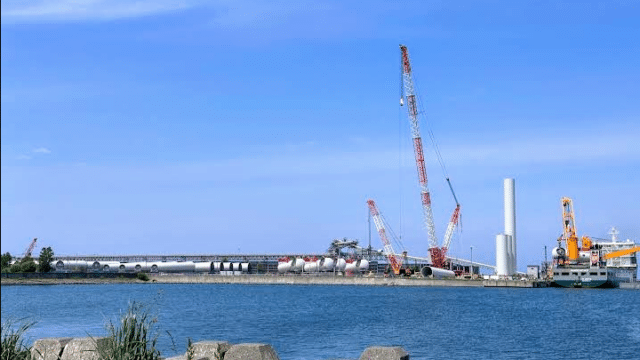
Japan’s Offshore Wind Plans Find Hope
Japan’s offshore wind ambitions face a costly, slow rollout, with only about 253 MW online and Mitsubishi withdrawing from the 1.76 GW Akita and Chiba projects slated for between 2028 and 2030. Analysts warn that without stronger policy support, clearer offtake and improved grid and supply-chain frameworks, the 2030 target of 10 GW and 2040 target of 45 GW look increasingly out of reach.

Strengthening Energy Resilience to Overcome Power Outages in Southeast Asia
As extreme weather disasters strike, causing long-lasting outages, disrupting access to essential services and threatening the health of people in affected areas, such events have been common in Southeast Asia recently. The aftermath reminds us of the importance of strengthening the energy system’s resilience. However, in most Asian countries, it remains neglected in climate change adaptation and resilience policies.

After Seizing Venezuela Oil, Trump Quits 66 International Organisations: The Impacts
Scientists, market experts public and private stakeholders argue that Trump's latest moves won't erase climate science. While they will definitely derail the global efforts to tame the climate crisis, the biggest damage would be done to the US, its economy, global stature and relationship with allies.
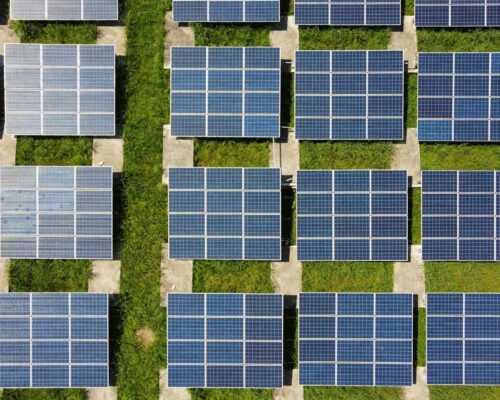
2026 Renewable Energy Outlook: A Potentially Quieter Year, But Steady Growth to Continue
While most experts anticipate a potentially quieter 2026 for the renewable energy industry, new capacity deployment is expected to continue growing, primarily driven by China. This will ultimately seal the fate of coal power, further accelerating its decline. Still, more ambitious and urgent action is needed to achieve a triple increase in renewable energy capacity by 2030.
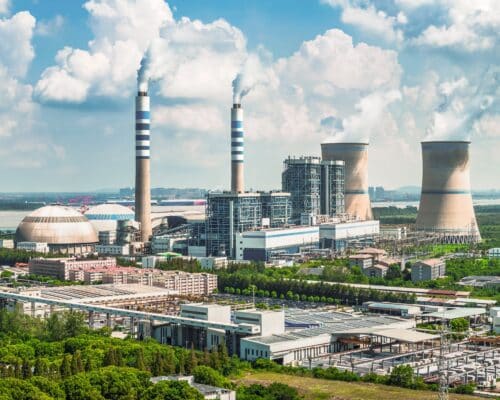
Coal Power Drops in China and India for First Time in 52 Years After Clean-energy Records [Op-Ed]
Coal power output fell in both China and India in 2025 for the first time in 52 years, despite rising electricity demand. The decline coincides with record clean-energy additions—solar, wind, and nuclear—that more than offset demand growth, suggesting a potential peaking of coal use in both economies if clean-energy expansion continues. This shift has important implications for global CO2 trajectories, given the two countries’ dominant share of recent emissions growth.
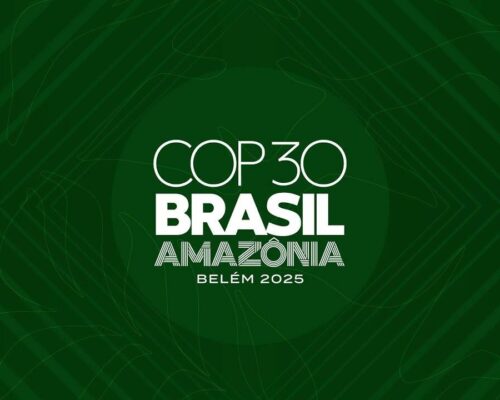
COP30 Outcomes: Takeaways from the UN Climate Talks in Brazil
COP30 ended with some significant wins for climate action. Adaptation finance was increased, new funding was gathered for renewable energy, and a 1.5°C goal was reaffirmed. However, the lack of a plan for a global phase out of fossil fuels soured the final COP30 text. This dichotomy defines this year's COP and highlights the lack of continuity in critical aspects of global climate action.

Special Focus on AI and Climate Change at COP30
AI's growing energy use can do enormous environmental damage and the technology can magnify climate disinformation. However, it can also improve early warning systems, improve climate change adaptation and reduce CO2 emissions when powered by renewables. Governments and corporations have to choose which path to take.
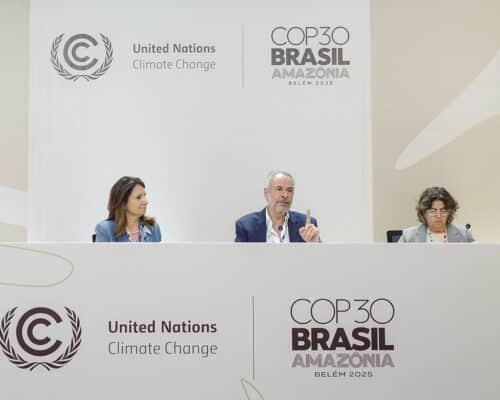
No Progress on the Global Stocktake at COP30
While scientists increasingly consider the 1.5°C goal impossible to achieve, public and private sector stakeholders at COP30 can still help ensure a livable future for the next generation by uniting and working to urgently phase out fossil fuels, halt and reverse deforestation and scale up renewable energy sources.

At COP30, Transportation Emissions Remain a Big Hurdle
COP30 highlighted a critical gap: despite funding pledges, transport remains underfunded and slow to decarbonise. With Asia’s rapid urbanisation driving demand for mobility, accelerated, equity-focused investments in clean and inclusive transport are urgently needed to avoid locking in high emissions and inequitable access.
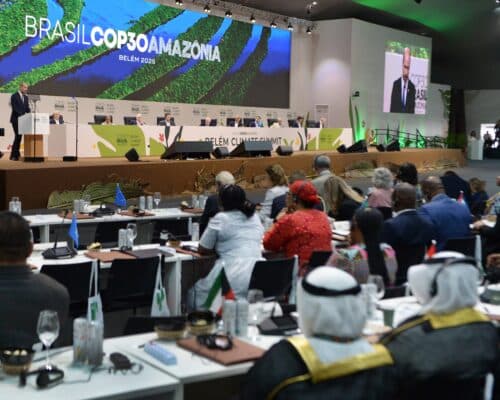
Climate Finance at COP30: Can Developing Countries Expect a Breakthrough?
As COP30 unfolds in Belém, developing nations press for action over pledges, urging a shift from climate finance commitments to real-world implementation. The toll of climate disasters in 2025 underscores the urgency: loss and damage funding remains far short of what’s needed, even as new tools and debt-for-climate swaps begin to unlock potential investments.
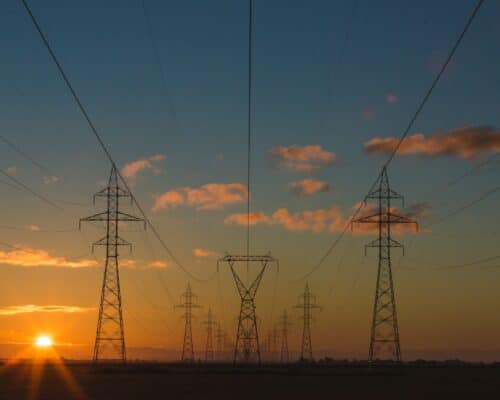
What COP30 Should Deliver to Advance the ASEAN Power Grid
The regional grid, a decades-old concept, could significantly accelerate Southeast Asia’s transition to renewables, ensuring stable, secure, clean and affordable electricity for countries in the region. However, for that to happen, leaders at COP30 must address the policy and financing roadblocks impeding the initiative.
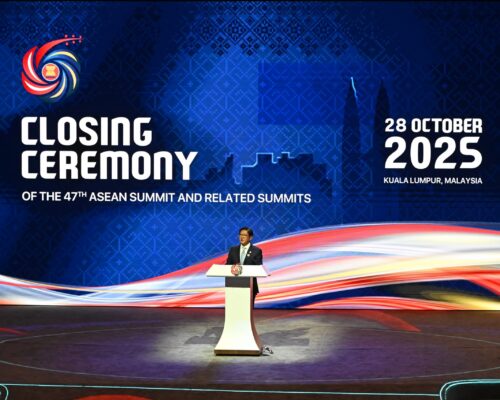
47th ASEAN Summit 2025 Ends With Trump Promising Support to Southeast Asia
ASEAN is becoming a key point of interest to global superpowers. However, it remains critical that, in the negotiation process, Southeast Asian economies don't neglect their own interests as in the case of the energy transition, where they are increasingly succumbing under the external pressure of the fossil fuel lobby.
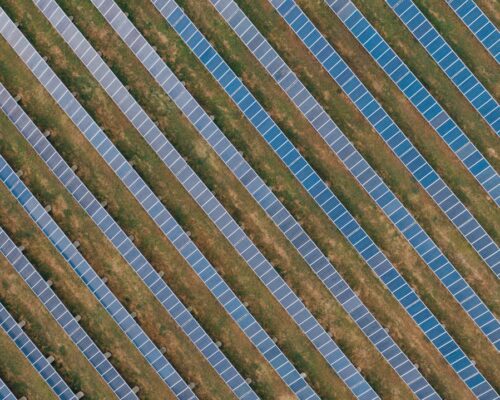
Proposed Ammonia Co-firing Solutions More Expensive than Renewables
The LCOE for ammonia co-firing exceeds that of renewable electricity, rendering Southeast Asia’s plans economically unfeasible. According to experts, instead of exposing themselves to the financial, environmental and health risks associated with ammonia co-firing, ASEAN nations should prioritise the accelerated deployment of renewable energy.

Renewable Energy Trends 2025: Capacity to Double by 2030
Despite the positive trends, the IEA warns that the COP28 to triple clean energy capacity remains out of reach. To get back on track, countries should minimise policy uncertainties, reduce permitting timelines, increase grid investments and expand flexibility to facilitate the integration of variable renewables and derisk financing.

Gas Turbine Shortage in Vietnam and the Philippines
Experts note that delays, exacerbated by global gas turbine shortages, and regulatory and bankability challenges are giving clear market signals to move away from gas projects and scale up renewables and battery storage deployments instead.

Domestic Banks Are Propping Up Indonesian Coal Despite Climate Risks
Despite global financiers halting support for coal power, Indonesia's major domestic banks are filling the void by funnelling billions into new coal projects. This continued investment risks locking in decades of pollution, making the country's climate goals impossible to achieve and hindering the uptake of cleaner energy alternatives.
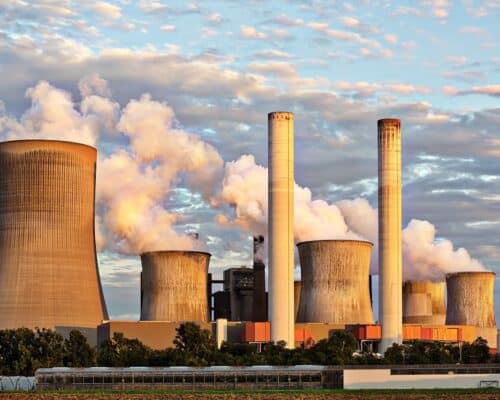
China’s 2035 NDC: Emissions to Drop 7-10%, Analysts Concerned
There are targets, and then there’s reality, and China’s 2035 NDC perfectly embodies this. While the targets are weak, it is hard to imagine that they weren’t set on purpose, just to be broken afterwards — a habit China has demonstrated over the years.

Climate Governance at an All-time High But Challenges Remain
Analysing the progress made in the decade after the Paris Agreement, DDP experts find that climate governance has put us on the right trajectory. However, a lot of work is left, and countries need to scale and accelerate their efforts to avoid the worst impacts of the climate crisis and unlock economic growth and resilience along the way.

UBS Quits the Net-Zero Banking Alliance: The Consequences
The mass exodus of UBS and other leading banks from the NZBA has made the coalition a thing of the past, sending a clear signal to the market that climate change has become even less of a priority for financial institutions. For Southeast Asia, one of the most climate-vulnerable regions and a hotspot for fossil fuel expansion, this outlook leaves little room for optimism.
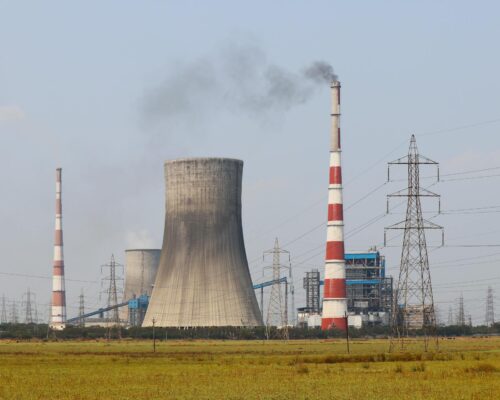
CREA: Indonesia’s RUPTL Plan Puts Fossil Fuels First, Renewable Energy Later
According to CREA, Indonesia’s RUPTL 2025-2034 reveals major discontent between the ambitious climate pledges and public commitments of the country’s leadership and the real plans, which see a projected growth and a pivotal role for fossil fuels.

The 2025 APEC Meeting: Opportunity For South Korea to Step Up
The sluggish global emissions reduction progress and the worsening climate emergency necessitate all hands on deck. South Korea, which has historically been among the biggest climate laggards, can change course and help lead Asia towards a cleaner and more sustainable future.

Trump’s Environmental Policy: Is “Climate Change the Greatest Con Job Ever”?
While Trump's climate policy rollbacks have destabilised global efforts, they are also accelerating a power shift, paving the way for Asian nations to emerge as the world's new climate leaders.

BNEF: Renewables Are Becoming Cheaper than Natural Gas in Southeast Asia
Despite the better economics, improved energy security and accelerated climate action that renewables guarantee, Southeast Asian nations plan for massive gas investments. Changing course requires political ambition for weaning energy systems off fossil fuels, pledging more ambitious climate targets and supporting clean energy developers.
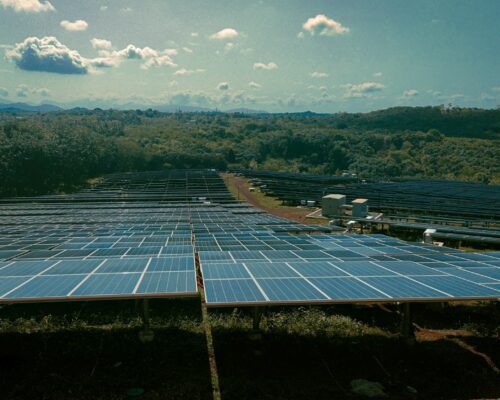
China’s Green Manufacturing Industry Brings Massive Investments to 54 Countries
A new database reveals that a rapid acceleration in overseas investment by Chinese green technology manufacturers is reshaping the global clean-tech landscape and bringing economic benefits to over 50 countries worldwide, with ASEAN attracting the most capital.
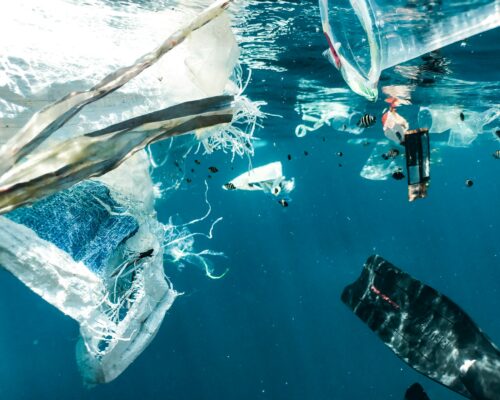
Why Global Plastics Treaty Talks Failed?
The failure of the INC-5.2 Geneva talks highlights how vested interests, particularly petrostates, continue to block meaningful global action on plastic pollution. With plastic production surging—contributing nearly 5% of global emissions—and microplastics infiltrating ecosystems and human health, urgent leadership and policy shifts are critical.
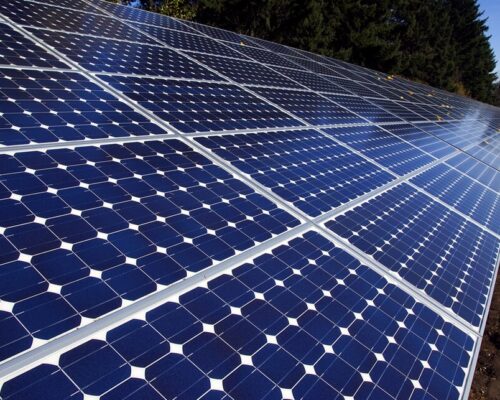
Perovskite Solar Cells Race: Japan’s Plan to Lead
Japan is racing to lead the global perovskite solar cell industry, aiming to install 20 GW by 2040 and build a self-sufficient supply chain. Despite promising technological advances and ambitious targets, cost and durability barriers remain, highlighting the need for bolder policy support to turn perovskites into a game-changer for decarbonisation and energy independence.
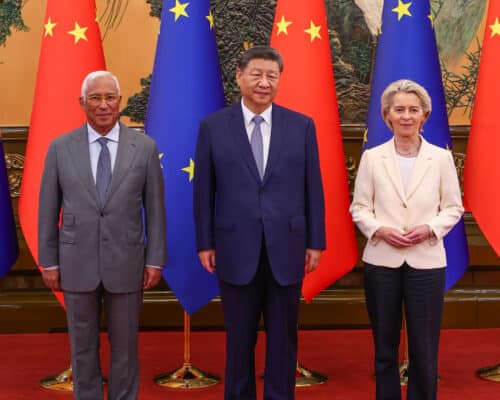
The EU-China Meeting Marks a New Era in Climate Diplomacy
The world has reached the moment when emissions must peak to keep the 1.5°C target within reach and avert the most devastating impacts of climate change. In the absence of the US, the China-EU climate cooperation offers hope that this might still be possible.

AI Data Centre Development in Japan and Clean Energy Transition
As AI data centres rapidly expand globally, their immense energy demands threaten to undermine decarbonisation efforts — unless powered by 100% renewables. Japan’s proactive “Watt-Bit Collaboration” aims to coordinate data centre growth with renewable energy development, but challenges around location and definitions of “clean energy” remain. The future of sustainable AI hinges on smart policy and clear energy standards.

2025 House of Councillors Election Results Bring Uncertainty For Japan
The election results indicate that the government may now need to make concessions to other parties to pass legislation. And with the growing influence of Trump-inspired parties, climate action and renewables-favouring energy policies might take yet another blow.
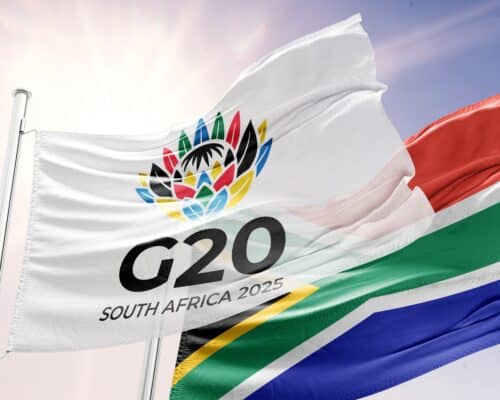
G20 Summit 2025: A Pivotal Moment for Developing Countries
South Africa’s chair of the G20 presents a unique opportunity to influence global policies and advocate for the interests of low-income and developing countries and their needs in addressing the challenges they face due to climate change and poverty.
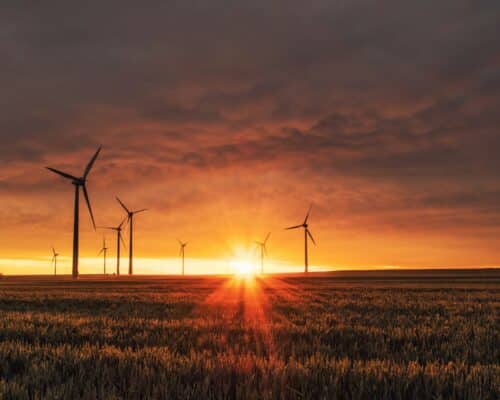
UN and IRENA: Renewables the Cheapest Electricity Source in 2024
New reports reveal that solar and wind power offer the lowest-priced electricity even without governmental support. Renewables have also helped save billions in fossil fuel import and climate damage costs, while boosting GDP and opening up millions of new jobs. Still, the world continues to subsidise polluting fuels — a practice that the 2035 NDC updates should end.
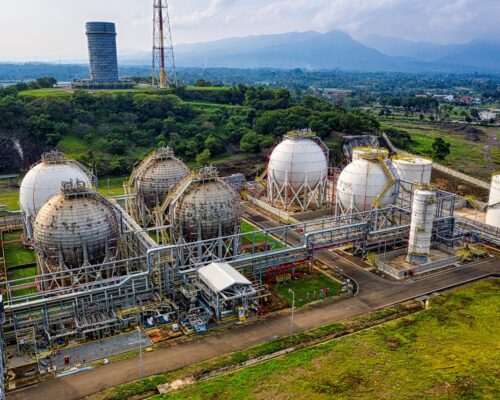
What’s Behind Gas Expansion in Australia – New Report
A new report reveals that Japanese and Korean corporate profits fuel gas expansion in Australia, jeopardising climate goals and posing financial risks. Despite warnings from the IEA that no new gas projects are needed for a net-zero future, Australia continues to expand LNG exports, risking increased emissions and environmental harm while locking in fossil fuel dependence.

What Lawmakers in the Philippines Can Do To Lower Power Prices
While the Philippines has made strides in developing its clean energy market, accelerating the energy transition to levels consistent with a net-zero aligned pathway requires scaling up the build-up of renewables, expanding the power grid and limiting new fossil fuel capacity and imports.
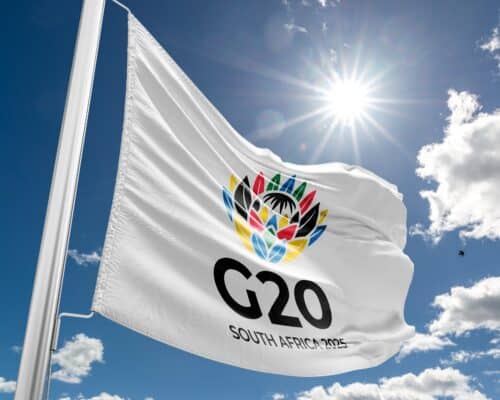
Lack of US Engagement Impacting 2025 G20 South Africa Summit
As the 2025 G20 summit approaches in South Africa, ongoing US disengagement and anti-climate policies threaten to undermine global cooperation on climate action. Despite challenges, other G20 members can strengthen alliances, pursue independent climate initiatives and mobilise finance to ensure progress toward sustainability and a just energy transition, even in the face of US setbacks.

Philippines LNG Imports Costing Households Billions
Experts warn that plans to expand LNG import infrastructure, paired with the volatility of the fuel on global markets, will financially burden the country, as well as significantly increase electricity prices for consumers at times when cheaper, cleaner, renewable energy alternatives remain underutilised and readily available.
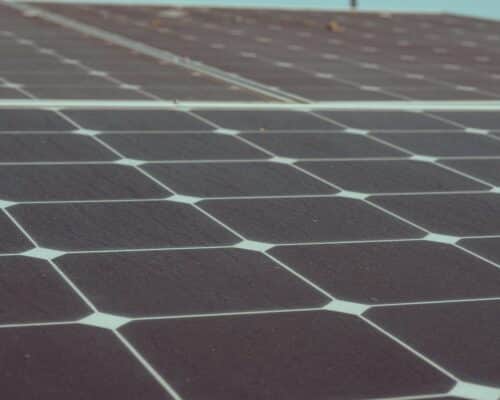
While Fossil Fuels Volatility Increases, Battery Storage Gets Cheaper, Making Solar Power Always Available
While solar is already the most viable solution for improving energy security, reducing power costs and mitigating carbon emissions, recent advancements and cost reductions in battery storage are now enabling us to ensure 24 hours of daily solar power. According to experts, the biggest obstacle to doing so is the business-as-usual mindset.
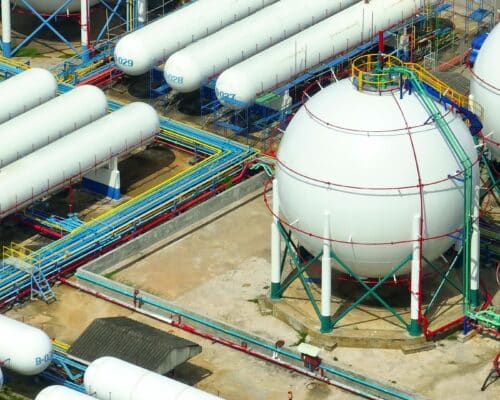
LNG Usage in Southeast Asia Should Be Ending, Not Moving Forward, Experts Claim
LNG does not fit Southeast Asia's energy sector due to price volatility, European arbitrage opportunities swinging supply away from the region, shipping route disruptions and self-serving vested Japanese corporate interests. What's needed is policy-level change. But do countries have the political self-will and determination to make the right decision?

The G7 Summit and the Bonn Climate Conference 2025 Fail to Deliver, Mounting Pressure on COP30
Military conflicts, trade wars and geopolitics distracted attention from the climate crisis at this year's Bonn Conference and G7 Summit. However, as the Paris Agreement marks its tenth anniversary, countries should demonstrate ambition in their NDCs and use COP30 to outline a clear vision for the next and most important decade for global climate action.
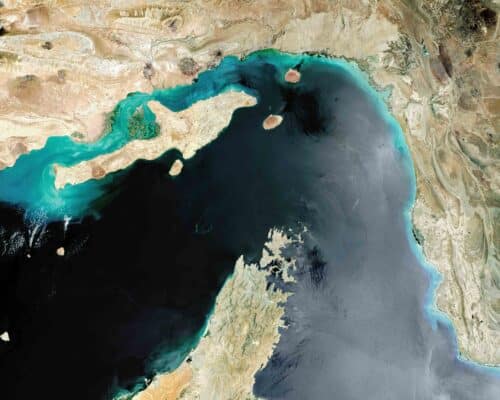
Japan Most at Risk from Disruption in the Strait of Hormuz
Japan’s economy relies on access through the Strait of Hormuz, two-mile-wide shipping lanes that carries 80% of the crude and LNG the country burns daily. With regional tensions simmering, even a brief blockade of the Strait could send energy prices skyrocketing and highlight Tokyo’s need to accelerate its pivot to domestic renewables.
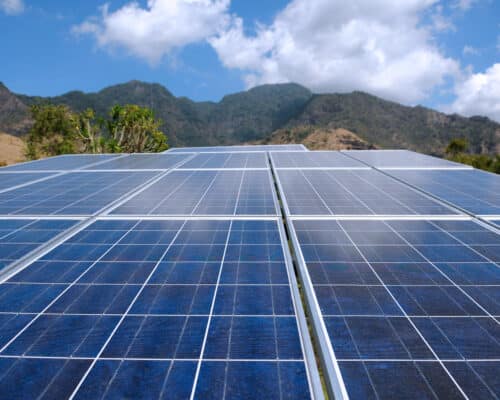
Indonesia’s RUPTL 2025-2034: New Electricity Supply Plan Misses the Mark
Indonesia’s new electricity plan signals a setback for clean energy. Increased reliance on fossil fuels and no clear plan for coal phaseout threaten both climate goals and economic growth. Despite abundant renewable resources, the country prioritises gas and coal, risking higher costs, environmental harm, and missed opportunities to lead in Southeast Asia’s clean energy transition.
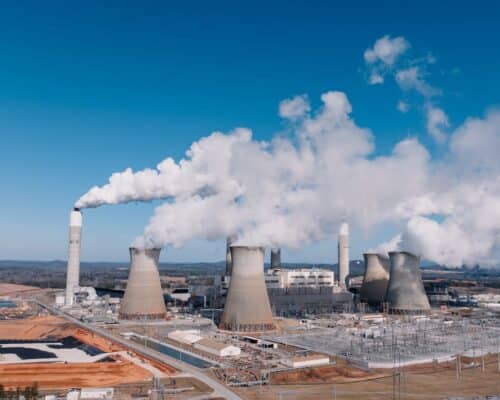
Fossil Fuel Divestment Scorecard: Japan “Dirtiest” Financier
Japanese banks have again emerged as the leading fossil fuel financiers in the region, while Southeast Asian financial institutions also play a prominent role. According to the report’s authors, their actions undermine the food security, biodiversity and health of millions in the region.
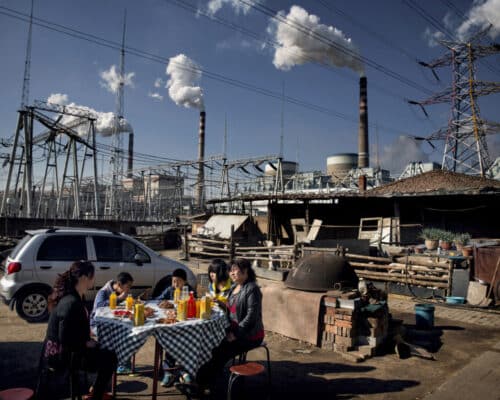
Stranded Assets Linked to MDB Finance Trigger Asia’s Economic Tailspins
Many Asian countries, including Bangladesh, face the economic fallout of investing in stranded fossil fuel assets. Despite billions spent on gas pipelines and power plants, these projects remain largely unused, highlighting the urgent need to shift towards affordable, renewable energy solutions.

LNG Investments Expand Gas Fleets in Japan, China and South Korea
Despite the urgent need to transition away from fossil fuels, global investments in LNG shipping are soaring, locking in decades of emissions and risking stranded assets. Experts warn that building new LNG carriers is both climate-destructive and economically unsustainable, emphasising the importance of shifting investments toward renewables to meet climate targets and ensure financial stability.

The 46th ASEAN Summit Ends With Pledges For Climate Action and Plans For More Fossil Fuels
The 46th ASEAN Summit in Kuala Lumpur concluded with numerous positives for regional cooperation and strengthened connections with China and other developed Asian nations. However, it also revealed that, despite all the talk about protecting communities from the impacts of climate change, leaders are determined to continue relying on fossil fuels.

China’s CO2 Emissions Fall For the First Time
China's accelerated renewable energy deployment has allowed it to slash emissions and unlock the numerous benefits of the green energy transition, giving Southeast Asian nations a push to recognise and capitalise on the benefits of decarbonising their economies — from cost-cutting and energy security to ensuring a liveable future.
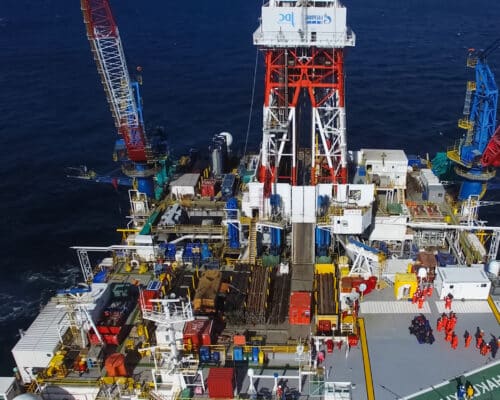
Southeast Asia Oil and Gas Extraction to Escalate, Decarbonisation Goals in Jeopardy
The Southeast Asia region faces a decade of final investment decisions for gas extraction projects, further complicating its decarbonisation goals. The silver lining, however, is that many of these projects have faced years of delay and need to be reassessed.

IEEJ Predicts Strong Natural Gas Demand; Experts Find it Unrealistic
The IEEJ’s forecasts significantly overestimate natural gas demand and underestimate renewable potential, driven by close ties to Japanese industry and fossil fuel interests. Its projections also rely on unrealistic assumptions about CCS and emissions reductions, contradicting scientific consensus on clean energy costs and feasibility.

Australia’s Federal Election 2025 and What It Means for Climate Change Agenda
Australian Prime Minister Anthony Albanese's victory on May 3 for a second three-year term paves the way for enhanced climate policies, yet challenges include excessive regulations, costly renewables and rural opposition to wind and solar projects.
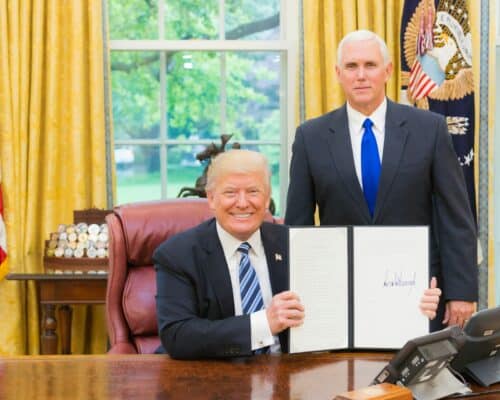
US Tariffs on Southeast Asia: What They Mean for Global Trade
From islands inhabited only by penguins to decades-long trade partners, over 90 jurisdictions were slapped with tariffs once President Trump got back at the helm of the US. While the move risks causing massive short-term instabilities, it can prove a blessing in disguise for Southeast Asia and its solar panel manufacturing industry.
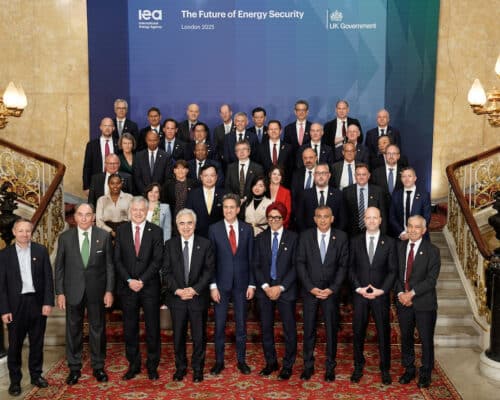
IEA’s Future of Energy Security Summit Ends With a Call For Cooperation, Less Fossil Fuels and More Renewables
The Energy Security Summit ended with a strong message - energy security is a question of national security, and climate change threatens both. Parties agreed that an effective response requires increased collaboration in reducing fossil fuel import reliance and scaling up renewables.

Is the U.S. Losing Its Cleantech Edge?
The Inflation Reduction Act (IRA) has significantly boosted clean energy manufacturing, job creation and emissions reductions in the US and Asia, fostering global leadership in cleantech innovation. However, threats from the current administration aiming to dismantle these incentives could slow progress, weaken international partnerships and hinder the region’s energy transition efforts. Continuing investments and regional collaborations are crucial to maintaining momentum in the face of potential setbacks.

Australian Election 2025: What it Means for Climate Change and Energy
Considering Australia’s emissions intensity and its role as a primary fossil fuel exporter, few have as much power in the mission to tame the climate crisis as Australian voters. And the results on May 3 give hope that clean energy and the climate crisis will sit high on Australia’s agenda in the following years.

South Korea Election 2025: Key Climate Issues and What’s at Stake
South Korea lags behind other developed nations regarding the clean energy transition, while the dependence on fossil fuel imports erodes its economy's competitiveness. While the country has the resources, capabilities and ready-to-deploy solutions to change course, its path ultimately depends on political will.

Bangladesh’s Predicament Deepens as Asia Braces for Expansion of Fossil Fuel Corporations
Bangladesh’s recent energy policies reveal a troubling shift toward expanding fossil fuel projects, including open-pit coal mining and LNG imports, despite ongoing issues with energy security and high costs. These developments, driven by political and international influences, threaten to deepen reliance on outdated fossil fuels while sidelining renewable energy efforts.
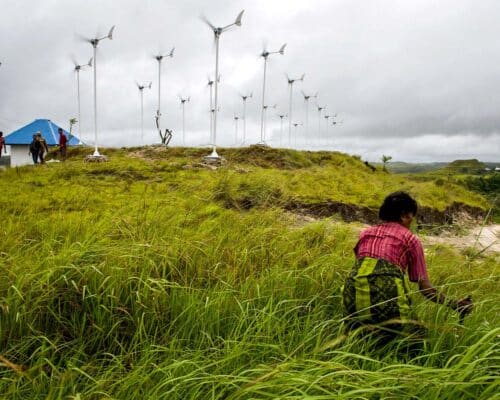
Asia’s Progress On Global Renewables and Energy Efficiency Pledge
Climate Analytics recently released a report on the progress eight key Asian countries have made towards key climate agreements from COP26 and 28. The report paints a diverse picture, with many highs and lows. However, the primary theme is a lack of consistency across the region, with countries failing to align their national policies with climate commitments.

China’s Oil Demand Dropped: Experts See Start of a Trend
The drop in the demand for oil-based fuels in China signals that their peak might be getting closer in what could prove a watershed moment not only for the global oil markets, but also for Asian countries that look toward China for inspiration on how to decarbonise their economies.
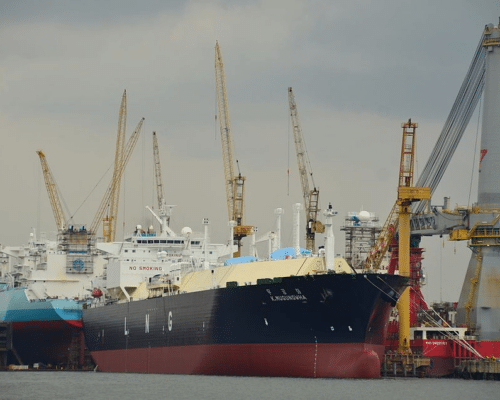
Unneeded Papua New Guinea LNG Project Would Harm Environmental and Human Rights
The Papua New Guinea LNG project is facing increasing investor withdrawal due to environmental and human rights concerns, with 13 of the top 50 investors already committing to withdraw funding. Critics warn that proceeding with this project could exacerbate climate change and violate the rights of local communities, emphasising the need for a shift towards renewable energy investments instead.
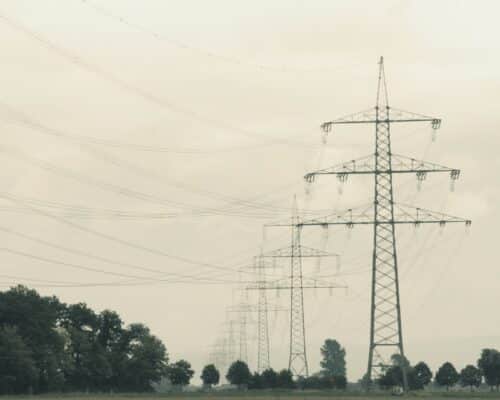
Cost-cutting Solution for Companies in the Philippines
Experts note that addressing the economic and social repercussions of the high electricity costs in the Philippines requires policy reforms that prioritise investments in renewable energy and reduce the reliance on fossil fuel imports.
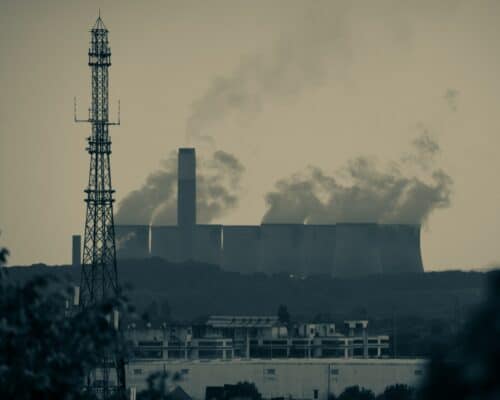
Boom & Bust 2025 Report: New Coal Power the Lowest in 20 Years
While the momentum against coal has never been stronger, the world remains off track with the Paris Agreement goals mainly due to ongoing efforts of high-emitting Asian economies like China, India, Japan, South Korea and Indonesia to extend the life of the most polluting fuel.
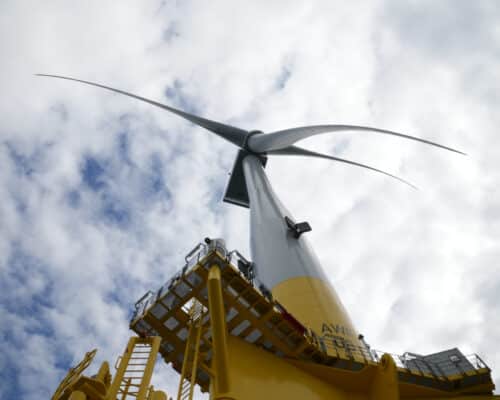
Japan’s Industrial Policy for Floating Offshore Wind
Japan is poised to harness its vast offshore wind potential by aiming for 140 GW of capacity by 2050, focusing on floating offshore turbines. Despite ambitious government reforms and private sector initiatives, challenges such as rising costs, slow permitting processes and inadequate infrastructure could hinder progress. Successfully navigating these hurdles is crucial for Japan to enhance its energy security and competitiveness in the global renewable energy landscape.

China’s Coal Plants Are Risking its Energy Transition
China's renewed commitment to coal, marked by the construction of 94.5 gigawatts of new coal power capacity in 2024, poses a significant threat to its climate goals. Despite ambitious renewable energy expansion, the reliance on coal and the rise in coal gasification could undermine efforts to reduce greenhouse gas emissions and hinder the country's transition to cleaner energy sources.

Climate Tops Voters’ Priorities As Asia Pacific Braces for 2025 Elections
The elections that are about to take place all over APAC in the upcoming months provide candidates with an opportunity to acknowledge ambitious climate and emissions reduction action not only to appease climate voters but also to guarantee economic growth, energy security and better handling of the cost-of-living crisis.
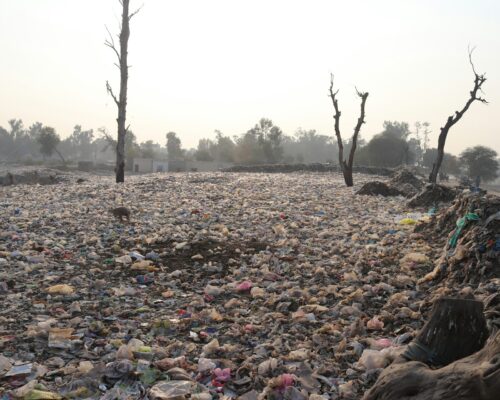
The Global Plastics Treaty and Its Importance to End Plastic Pollution
While a few petrostates blocked the progress on the Global Plastics Treaty in 2024, countries will have another chance to advance the initiative in August 2025. Failure to overcome the fossil fuel lobby’s interests for a second time would be devastating for global efforts to tackle one of the most pressing environmental challenges of our time.
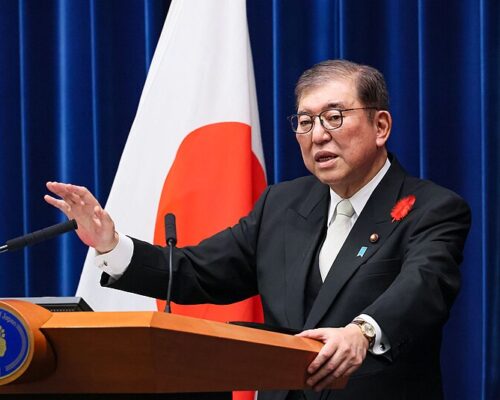
Japan’s Seventh Strategic Energy Plan Is Both Unambitious and a Fantasy
Japan's seventh Strategic Energy Plan, finalised on Feb. 18, 2025, targets 40-50% renewable energy and 20% nuclear power by 2040 but faces criticism for being overly optimistic. Experts warn that without major policy reforms, Japan may continue relying on fossil fuels, highlighting the need for greater transparency and diverse input in energy planning.

IPCC’s 62nd Session in China Fails to Agree on Deadline For Next Climate Reports, Scientists Concerned
Despite the prolonged discussions, delegates couldn’t agree on the timeline for the AR7 reports’ delivery for the third time in a row. The efforts of a group of countries to slow progress at the IPCC-62 down succeeded, creating uncertainty whether the reports would be produced in time to inform the second Global Stocktake.
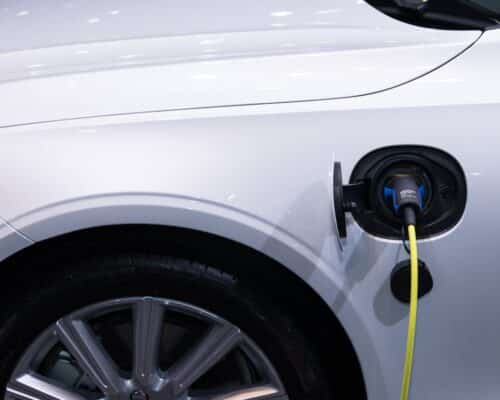
China GDP Breakdown: Clean Technology Sectors Driving Economic Growth
China’s GDP growth is increasingly driven by the clean energy sector, reflecting the country’s shift...
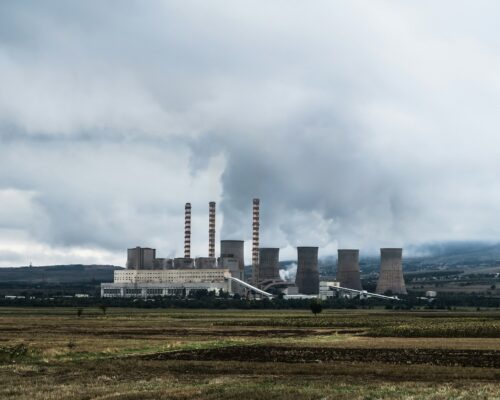
Captive Coal Threatens Indonesia’s Peak Emissions by 2030
Ember's latest research reveals that Indonesia’s captive coal expansion plans risk distancing the country from its ambitious decarbonisation goals. The analysts warn they could also lead to increased electricity costs and adverse health impacts.
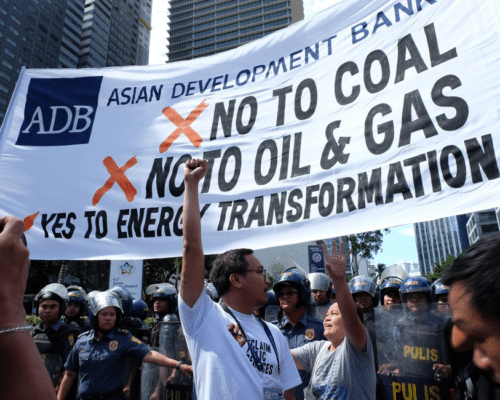
MDBs’ Love for Fossil Fuel Leaves Asian Nations Floundering
Multilateral Development Banks (MDBs) face criticism for financing fossil fuel projects that undermine climate goals. In Bangladesh, the Asian Infrastructure Investment Bank (AIIB) invested $600 million in energy without supporting renewables, enabling coal and gas expansions that displaced communities. Similarly, the Asian Development Bank (ADB) focused on fossil fuels, worsening energy poverty despite claims of improving electricity access. This profit-driven approach exacerbates environmental degradation and social inequality in vulnerable nations.
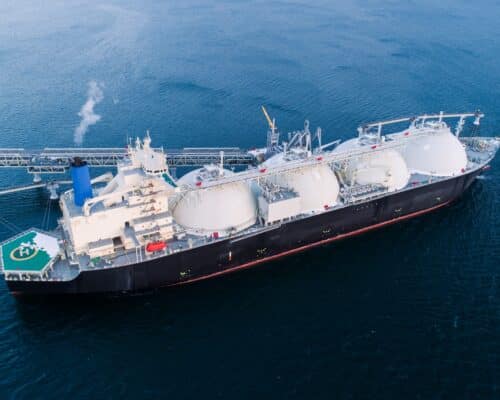
Is LNG Bad for the Environment? Panel Experts Say Yes
Portfolio players are building a wave of new LNG carriers at a record pace to keep up with LNG production. Many of these carriers are being built with unregulated capital and have no or weak environmental regulations. This will create more greenhouse gas emissions and lock in more fossil fuel usage for decades.

Japan To Buy ‘Record Amounts’ of LNG From US After Trump and Ishiba Meet
In times of heightened geopolitical risk and ever-dropping renewable energy costs, Japan's promise is likely to have significant consequences for its economy and energy security. However, the biggest impact might be felt by Southeast Asian countries – a prime target for Japanese stakeholders looking to resell excessive LNG.

Indonesia’s National Energy Plan (RUKN) Is Ambitious But Falls Short of Full Potential: CREA
According to a dedicated analysis by CREA, while ambitious, the RUKN fails to mobilise the full renewable energy potential of Indonesia and misses out on substantial cost-efficiency gains in the electricity sector. However, the experts note there is still time for demonstrating more ambition.

Japan’s Updated NDC Plans Fall Short of Expectations
Japan’s delay in updating its Nationally Determined Contributions (NDCs) raises concerns about its climate ambitions. The proposed targets — 60% emissions reduction by 2035 and 73% by 2040 — fall short of the Paris Agreement’s 1.5°C goal. Japan's policy-making structural issues, including industry influence over energy policy and the primacy of energy policy over climate targets, hinder progress. Reforming Japan’s policy-making framework is essential.
Natural Gas Price Forecast 2025: Asia To Drive Global Demand
In 2025, natural gas markets will continue facing uncertainty, with market analysts warning of continuously increasing prices hitting import-reliant Asian economies. This necessitates accelerating renewables deployment to ensure more affordable, secure and clean energy for their growing economies.

Trump Quits the Paris Agreement: The Consequences
Experts say that while Trump's decision will significantly impact global climate action, it won't derail it since the clean energy transition is already underway. The economic reasoning behind it is too strong to ignore. However, other nations must unite and increase their efforts to protect the most vulnerable.
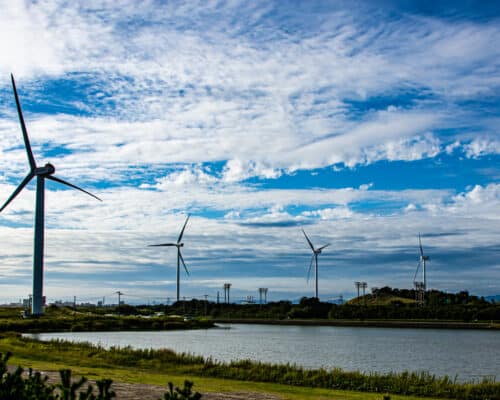
Japan’s Offshore Wind Potential
Japan needs to boost offshore wind power generation to meet decarbonisation goals, as current targets of 10 GW by 2030 and 45 GW by 2040 are deemed insufficient. With significant offshore wind potential, experts call for more ambitious goals and better policies to enhance investment and reduce reliance on fossil fuels.
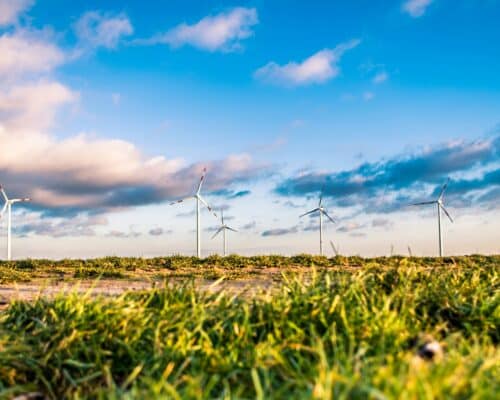
APAC Stakeholders Must Accelerate Renewable Energy Adoption
As the climate crisis escalates, accelerating the fossil fuel phaseout and scaling up renewable energy...

Japan-influenced Strategies Trap Asian Nations in Fossil Fuels
Japan's significant investments in fossil fuels are shaping energy policies in South and Southeast Asian nations, leading to increased reliance on non-renewable resources in the region.
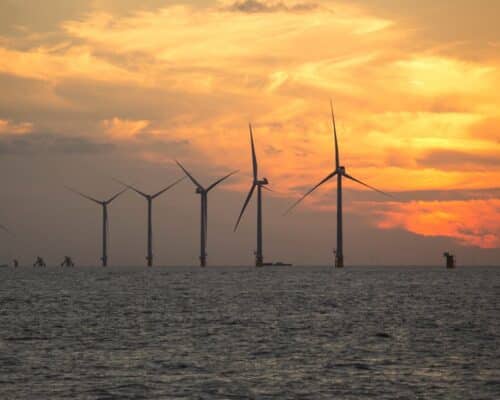
2025 Renewable Energy Trends in the Asia Pacific Region
Aside from leading the world in solar PV and onshore wind deployment, the Asia-Pacific region, led by China, will also accelerate the deployment and further increase innovations in alternative clean energy technologies such as offshore wind, floating solar and green hydrogen.
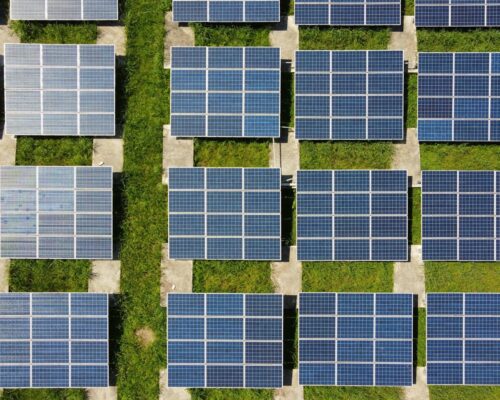
Energy Transition in Asia-Pacific: Opportunities in 2025
APAC’s booming economy, population and energy demand make the pace of its clean energy transition crucial for global efforts to slash carbon emissions in line with the Paris Agreement. The 2025 NDC updates and the ambition demonstrated by APAC countries will be among the most crucial developments this year.
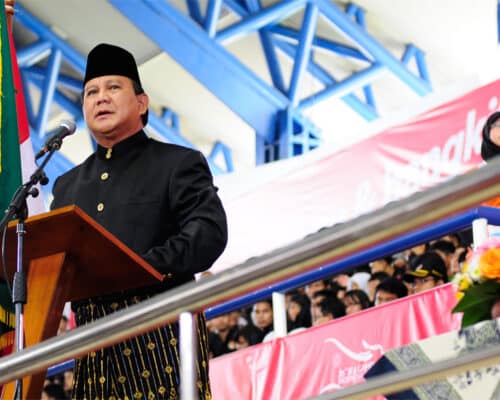
New Climate Finance Goal A Boon for Indonesia, But Much Work Remains
At COP29 in Baku, countries agreed on global carbon market standards and a new climate finance goal (NCQG) of USD 300 billion annually by 2035, offering opportunities for Indonesia’s energy transition. While President Prabowo Subianto has pledged ambitious renewable energy targets and a coal phase-down, challenges such as record coal production, inefficiencies in the carbon market and unclear climate finance structures persist. To fully benefit from COP29 outcomes, Indonesia must advance energy reforms, address data gaps, and align its policies with international climate goals.

To Phase Out Coal by 2040, Indonesia Should Address Captive Coal and Scale Up Renewables
Indonesia is starting to show ambition in accelerating its energy transition, including by aiming to phase out coal by 2040 and scaling up renewables. However, analysts say that succeeding requires addressing captive coal use and increasing solar and battery storage deployment.

Asia and Japan’s Energy Transition Not on Path to Net Zero
Asia must urgently decarbonise, but reliance on fossil fuel-based technologies like LNG and CCS, led by Japan, is stalling progress. Prioritising wind, solar and science-based policies is crucial in driving the region’s energy transition and tackling the climate crisis.
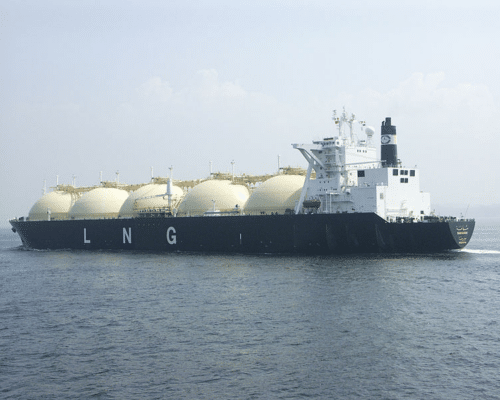
Fossil Fuel Projects Cost More Than Expanding Renewables, Analysts Say
Solar, wind and geothermal energy offer cheaper, faster-to-deploy and socially responsible solutions for the future of energy. Yet in Asia, these clear advantages are overshadowed by the Asia Zero Emission Community (AZEC), where Japan advocates for a future that keeps fossil fuels in play under the guise of green innovation.

What Asia’s Financial Industry Can Learn From Europe’s Climate Leadership
Through regulatory intervention and voluntary action, the EU and its financial industry are leaving the fossil fuel era behind. While Asian banks and investors remain deeply entrenched in coal, oil, and gas, in the potential absence of the US, they can lead global climate action alongside Europe.

How AZEC and Japan Are Pushing Fossil Fuel-based Solutions in Asia
The Asia Zero Emission Community (AZEC), launched by Japan in 2023 to promote regional decarbonisation, has drawn criticism for prioritising fossil fuel-based technologies like LNG, ammonia co-firing, and carbon capture over renewables such as wind and solar. Experts argue that these "false solutions" perpetuate fossil fuel dependency, risk derailing emissions targets and harm frontline communities while offering limited decarbonisation potential.

COP29 Outcome Falls Short of An Ambitious Goal
After intense negotiations, the final text for the NCQG settled on USD 250 billion annually by 2035 – falling significantly short of the USD 1.3 trillion goal and exposing the gap in wealthy nations’ commitments.
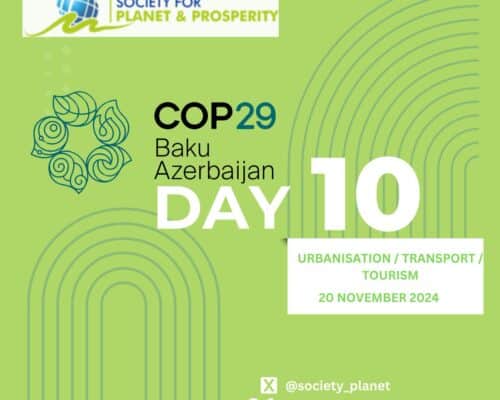
COP 29 Urbanisation Day Outcomes: High-level Programme Launches
COP29's Urbanisation Day addressed how sustainable urban development can mitigate environmental impacts while fostering economic growth. This included a subfocus on tourism and transportation, which both rely on and result from urbanisation. The day's positive outcomes show global consensus on how urbanisation is critical to international climate action.
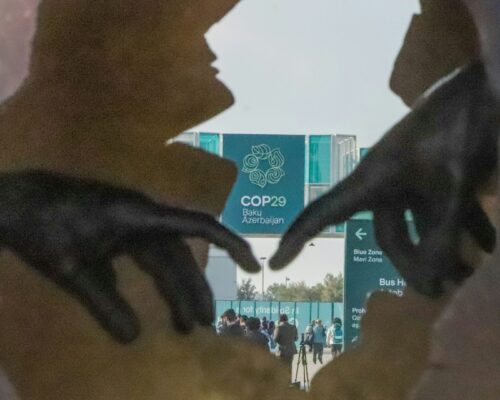
COP29 Inaugural Digitalisation Day: Charting a New Course
The COP29 Digitalisation Day explored the links between the digital sector and climate change, highlighting the opportunities and risks within their relationship. While parties laid a good foundation for future progress through their ambitious pledges, it is now crucial to build on them.

The COP29 Energy Day: Key Pledges and Highlights
Despite some positive announcements on energy storage and grids, COP29 is shaping up to be yet another conference where the vested interests of the fossil fuel industry would decide the outcome. While there is still time for major developments, the ambition seems to be lacking.
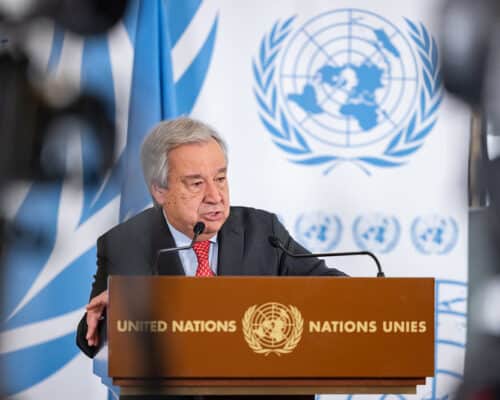
What Is at Stake at the COP29 Climate Finance Negotiations?
Dubbed the "Finance COP," COP29 will focus on closing the gap in global climate funding. Tackling climate change, adapting to its impacts and addressing related damages require substantial financial resources. While global climate investments have risen, much more is needed, especially to support developing economies and the world's least-developed countries.

What a Donald Trump Presidency Means For Global Action Against Climate Change
Trump’s win comes as a breath of fresh air to the fossil fuel industry. For many climate scientists and activists, it is no longer a question of whether the global climate crisis will get worse but how worse it will get. The new reality highlights the importance of climate multilateralism, where the EU, China and other nations take the lead.

APAC Data Centre Carbon Footprint to Escalate from Gas Usage
Data centre, cloud computing, and artificial intelligence (AI) investment in the Asia Pacific (APAC) region is escalating, but so is the need to power that buildout. Natural gas will be the fuel of choice for producing electricity for the sector. However, more gas development means more greenhouse gas emissions. A better way forward must be developed.

Asia’s Renewable Energy Leaders and Laggards in 2024
The International Energy Agency's (IEA) Renewables 2024, published in early October, reveals Asia’s renewable energy leaders and laggards.

How the 2024 US Presidential Election Might Change America’s Climate Policy
On Nov. 5, US voters will elect Kamala Harris or Donald Trump as their next president. Aside from the global geopolitical stage, the outcome will also significantly impact the world's decarbonisation journey, the prospects of achieving Paris Agreement goals and the efforts to tame the climate crisis.
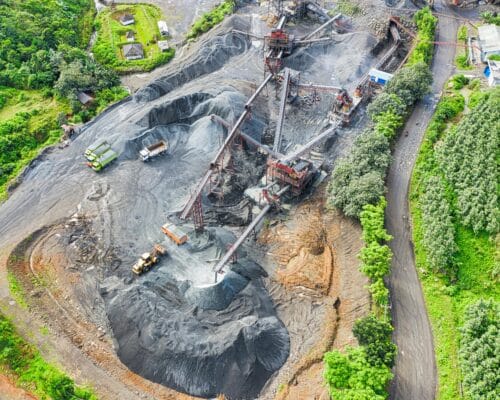
Indonesia’s Energy Policy Under The New President Prabowo Subianto
Environmentalists, human rights activists, and energy market analysts are wary of Prabowo Subianto's appointment as Indonesia's new president. However, the leader can prove them wrong in what would be a huge boost for Indonesia's and the global decarbonisation and sustainability efforts.
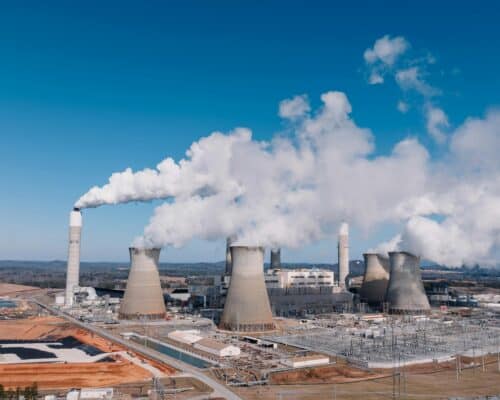
The State of Fossil Fuel Funding in 2024: The Biggest Corporate and State Backers
While unbearable heatwaves, catastrophic floods, and other devastating climate impacts are multiplying in frequency and severity, experts reveal that the top 60 largest private banks have provided USD 6.9 trillion to fossil fuels since the Paris Agreement.
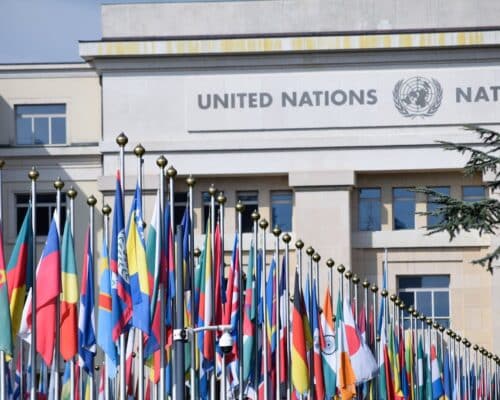
What to Expect From COP29 in Azerbaijan?
The mounting climate disasters are an alarming sign that there is no time for another wasted COP. So far, the signs from the host and the parties' discourse on crucial topics indicate this is easier said than done.
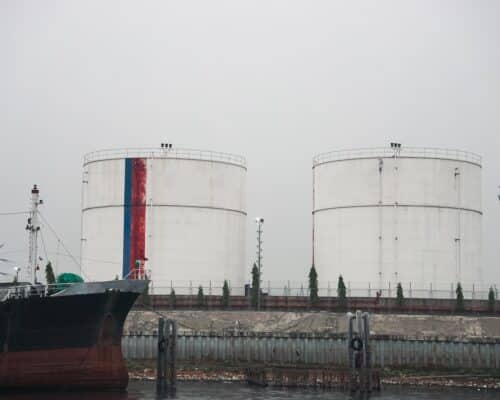
Bangladesh’s Fossil Fuel Misadventure Offers Sobering Lessons on What Not To Do For a Proper Energy Transition
Bangladesh is focused on tackling essential socio-economic challenges following its recent political transition. Dr Khondaker Golam Moazzem, the Research Director at the Centre for Policy Dialogue (CPD), shares his thoughts on how Bangladesh’s power and energy sector's trajectory is far off course and calls for proactively transitioning to cleaner energy sources.

Over One-third of AZEC Agreements Support Fossil Fuels, Risking High Emissions and Future Costs for Southeast Asia
Launched by Japan in March 2023, AZEC is a diplomatic initiative with eleven Southeast Asian countries and Australia to advance cooperation in Asia towards carbon neutrality and a platform for joint investment to develop zero-emission technologies across the region. However, according to Zero Carbon Analytics’ analysis, over one-third of those MoUs will promote fossil fuels or technologies that will prolong fossil fuels.

Laos’ Net-zero 2050: Renewable Power Generation Challenges and Opportunities
ASEAN member Laos has plans to increase renewable energy in its power mix, notably solar power buildout. However, it continues to rely on hydropower and coal-fired power plants to generate electricity, complicating both its way forward and decarbonisation plans.
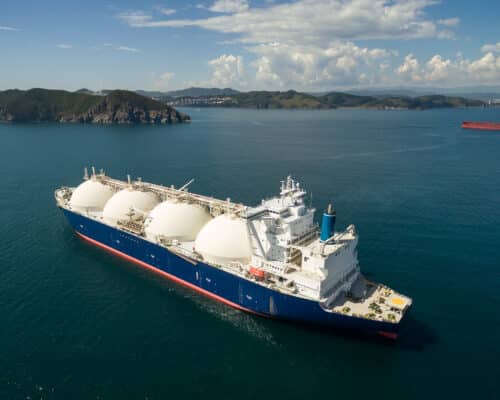
Japan’s Overseas Oil and Gas Financing Threatens the Global Energy Transition
A new report by the South Korea-based think tank Solutions for Our Climate (SFOC), “Billions Off Course: Japan’s Oil and Gas Financing Fueling the Climate Crisis,” provides a detailed look at Japan's persistent overseas oil and gas financing.

Green Steel: Powering The Low-carbon Economy
Green steel is produced without fossil fuels and has significantly lower emissions than traditional steel. The IEA sees green steel development as a critical step in global decarbonisation and for companies that rely on steel throughout their supply chains.

Steel Decarbonisation: A Pathway To Development
Decarbonising the steel industry is necessary for global climate goals and hinges on scaling up low-emissions production technologies, like renewable energy-powered EAFs and green hydrogen. An improved policy framework and industry support are critical for this shift.
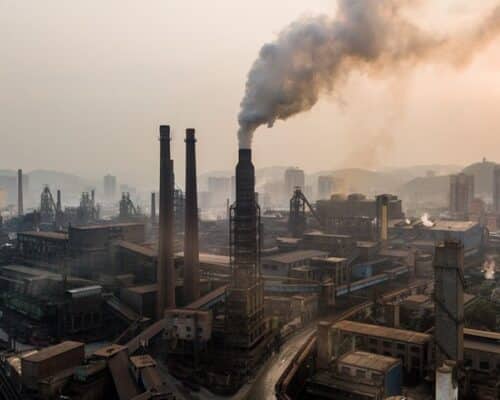
The Carbon Footprint of Steel: Decarbonisation Is Critical
The steel industry contributes nearly 8% of global CO2 emissions, making it crucial to decarbonise to achieve global climate goals. Adopting an array of strategies from use of electric arc furnaces to green hydrogen are key strategies to lower the industry's carbon footprint.

Solar 53% Cheaper than Fossil Fuels in Malaysia
Malaysia has solid renewable energy market fundamentals and, according to the IEA, hosts low investment risks for project investors. The country is just a step away from unlocking the advantages of the clean energy transition but the government needs policy reforms and more ambitious climate goals.

The Challenges of Financing Renewable Energy Projects in the Philippines
The Philippines has made progress in developing more renewable energy projects for its power sector. However, domestic banks need to streamline the process to bring more projects online and level the playing field between projects backed by politically connected corporate interests and smaller investors without the advantages of political and corporate backing.
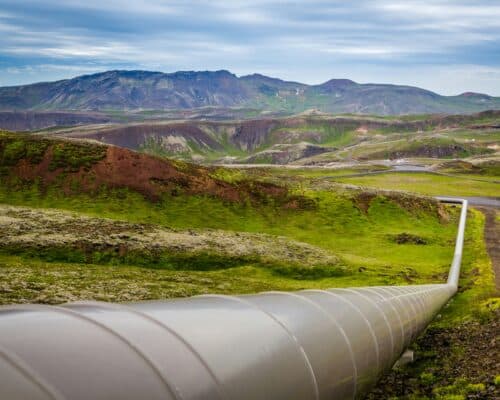
Investors Pulling Out of the Barossa Gas Project Adds to the Uncertainty
Since its announcement, the Barossa gas project has made the news due to legal disputes over its environmental impact, delays, and rising project costs. In the latest blow, prominent investors and financiers are pulling out their support for the project, leaving question marks about the project's future financing and completion.
How Bangladesh and Pakistan Can Survive the Energy Crisis
Fossil fuel import dependence has put Pakistan and Bangladesh in a very similar situation. However, both countries' pathways for salvaging it are also comparable: diversifying their energy mixes with a focus on renewables and reduced reliance on deliveries.
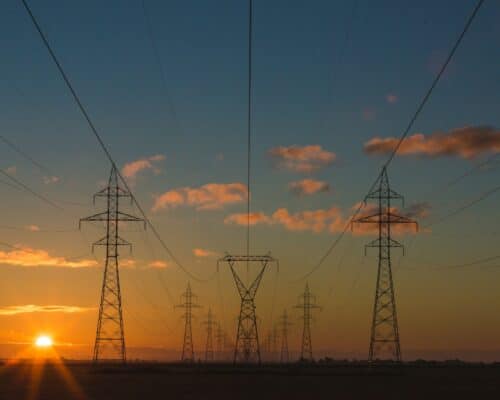
Energy Crisis in Pakistan: New Policy Approach Is Crucial
While there are hardly any easy short-term solutions to Pakistan’s energy situation, the country has a way out. The most viable strategy is helping its population navigate turbulent times while charting a more sustainable long-term energy system master plan emphasising energy independence.
Malaysia Nears Its 40% Renewable Energy Target by 2035
Malaysia has solid renewable energy market fundamentals, low investment risks for project investors and an abundance of untapped clean resources. Capitalising on them requires the introduction of favourable policies to attract green capital and ease project developers.

Heavy Industry Companies in China and India Are Lagging On the Just Energy Transition
The latest rankings of Heavy Industry Companies from the nonprofit World Benchmarking Alliance show that companies in Asia’s two largest countries and greenhouse gas emitters, China and India, are failing to implement clean energy and ethical standards compared to their counterparts across the region and the world.

100% Renewable Energy Adoption is Possible For Taiwan’s ICT Companies
In June, Greenpeace, in collaboration with the Research Centre for Sustainable Hong Kong, released a cost-benefit analysis supporting the assertion that an accelerated transition to 100% renewable energy would bring economic and environmental advantages to 13 major electronics manufacturers in East Asia. The insights are particularly relevant for Taiwanese companies, key players in the high-tech electronics sector in Asia, whose renewable energy efforts have trailed their rivals.
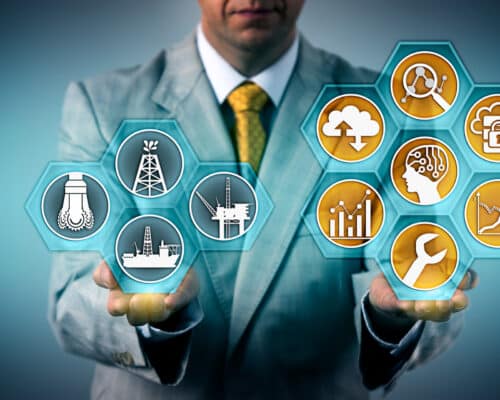
Innolux and AUO Should Follow Apple and Sony
Global electronics brands like Apple and Sony have taken the reins of decarbonisation. They are proactively curbing GHG emissions from their operations and energy use and have also committed to reducing emissions from their supply chains. Others, including Taiwanese electronics components makers Innolux and AUO, are lagging.

Energy Storage Systems and Grid Investments Crucial For Enabling Renewables Integration in Asia
Clean energy technology innovations are continuously breaking records but to capitalise on them and unlock the gains of the clean energy transition, it is essential to accelerate the investments in grid flexibility and storage.
The Illusion of Progress: Dissecting ASEAN’s 35% Renewable Energy Target by 2025
ASEAN's target is insufficient to meet Southeast Asia's climate goals. To stay within a 1.5°C pathway, the region must adopt more ambitious renewable energy policies, focusing on the rapid scaling of solar and wind, drawing from Vietnam’s example.

Taiwan’s Tech Companies Can Lead The Energy Transition
Taiwan’s tech companies are struggling to decarbonise. But the opportunity to lead the island nation’s...
2024 Trends in the Asian Solar Market: Growth and Opportunities
With China's global leadership in clean power deployment and technological innovation and Vietnam's solar market experience, Asia has the blueprint to champion the green energy transition. Will the region grab the opportunity?
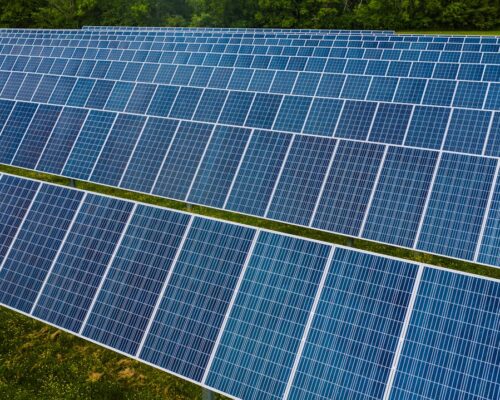
Clean Energy Investment in 2024 Twice Amount for Fossil Fuels: IEA
The IEA’s World Energy Investment 2024 reveals that while clean energy spending is at record levels, the investments still fall short of what is required for a 1.5°C-aligned world. The agency also highlights stark market contrasts and calls for more ambitious policy measures to bridge the financing gap.

G20 Summit 2024: Agenda and Promising Early Signs
The G20 Summit 2024 agenda promises to focus on advancing climate crisis solutions and the clean energy transition, addressing social inclusion, poverty and hunger, scaling up green capital for developing countries, reforming MDBs and discussing taxation on billionaires.
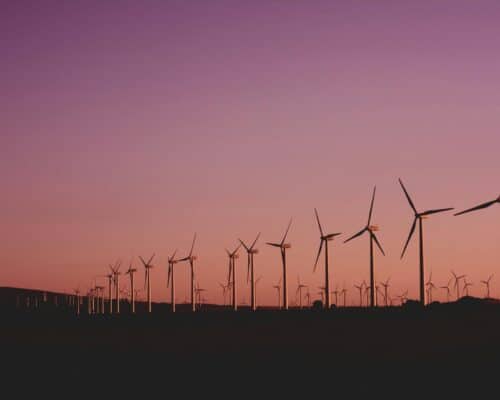
Affordable and Clean Energy: How to Achieve?
In a special report, the International Energy Agency notes that accelerated clean energy deployment will...

LNG Projects in the Philippines: Share of San Miguel Corporation
The Philippines continues its liquefied natural gas (LNG) development trajectory despite its cost, environmental impact and widespread disapproval. Manila-based conglomerate San Miguel Corp. (SMC) is spearheading this development.
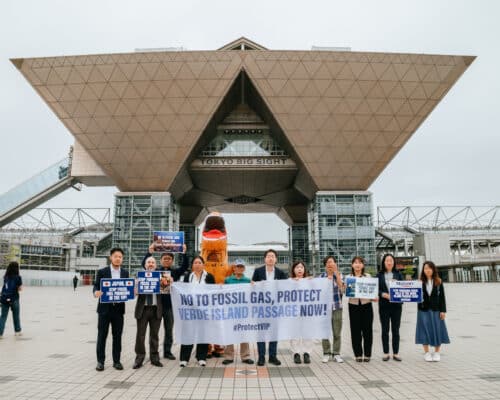
Greenwashing on the Agenda at Japan Energy Summit 2024
The Japan Energy Summit, held recently, included sessions on pioneering innovative energy technologies and accelerating decarbonisation in its agenda. Unfortunately, these sessions pushed fossil fuel narratives instead.

Offshore Wind Offers South Korea Huge Economic Opportunities: GWEC
According to the GWEC, offshore wind power can bring South Korea 770,000 new jobs and 87 trillion won (USD 63 billion) in investments over seven years. However, unlocking these gains requires a holistic plan where the government and stakeholders collaborate to introduce favourable supporting policies and advance community-focused offshore wind deployment.

High Costs and Renewables Surge Weaken Asian Gas Demand Forecasts
Long-term gas demand growth forecasts are starting to show signs of weakness due to energy security issues, national decarbonisation goals and the continuously decreasing costs of renewables.

Japanese Megabank MUFG Continues to Bankroll Fossil Fuel Development
Global financial institutions are still funding fossil fuel projects despite warnings over climate change. Japanese megabanks, for their part, continue to top the list. Mitsubishi UFJ Financial Group (MUFG), Mizuho and Sumitomo Mitsui Financial Group (SMBC Group) ranked among the 10 worst in fossil fuel funding in 2023.
Can Green Hydrogen Decarbonise Asia?
Hydrogen has long been promised as a clean fuel source with the potential to aid in transitioning away from fossil fuels. A recent report by the High-level Policy Commission on Getting Asia to Net Zero and the Asia Society Policy Institute highlights how green hydrogen could help decarbonise global steel production in Asia's major economies. Green hydrogen could have a significant impact in this prime sector.

Hydrogen’s Role in the Asia Pacific’s Energy Transition
Experts warn that achieving net zero in less than 30 years requires an increased focus on efficient and commercially available solutions like solar and wind, not conceptual ideas like hydrogen.
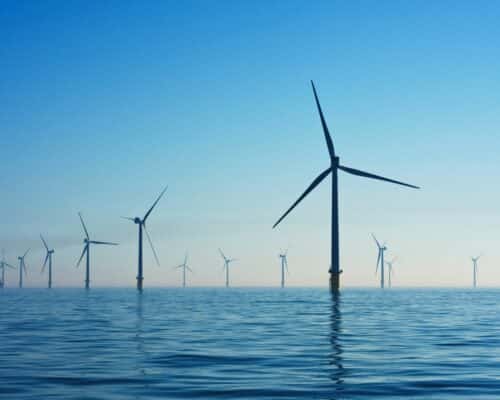
Wind Energy in Japan: Prospects, Benefits and Future
While Japan’s government increasingly considers wind energy a viable option, the progress is still sluggish. Accelerating it requires addressing various administrative burdens and introducing more ambitious policies.
The Renewable Energy Policy in Vietnam Risks Deterring Investors
Maintaining a healthy ongoing dialogue with clean energy investors and project developers is critical if Vietnam is to get back on track and continue stunning the world with its renewable energy progress.
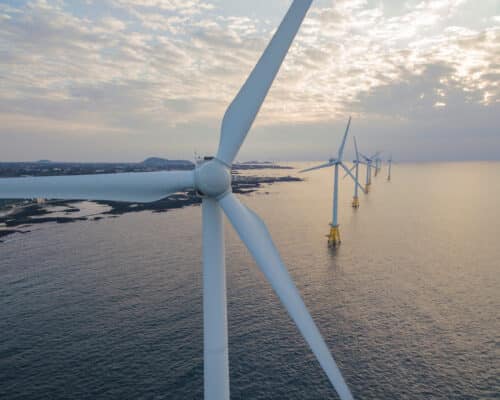
South Korea’s Energy Mix and Its 10th Basic Energy Plan
South Korea's decarbonisation progress so far makes hitting its 2030 and 2050 targets unrealistic. In its current form, the 10th Basic Energy Plan that will come into force this year is unlikely to change that. The country needs more ambitious renewable energy targets, a sentiment also echoed by South Korea's biggest businesses.
Malaysia’s Energy Transition: Challenges and Opportunities
Malaysia has great potential for clean energy alternatives like solar and hydropower. On paper, its energy transition is already mapped out. The question is whether it will follow this path or lock itself into a future of fossil fuel energy dependence.
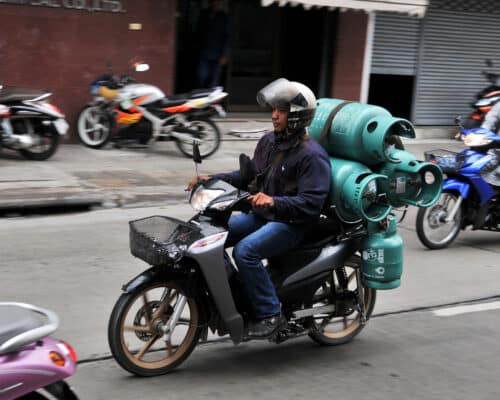
Southeast Asia’s New Gas Projects Hit Record High, Report Shows
Southeast Asia is ramping up investment in new natural gas fields. However, this new gas emits even more CO2 emissions when used for the region's power sector. Renewables offer both a cheaper and more environmentally friendly alternative.

Battery Energy Storage Systems Development – ASEAN Members Fall Behind
Battery energy storage systems (BESS) are becoming an integral part of the global push to develop renewable energy sources to rein in carbon emissions from fossil fuel-based power projects. However, the Association of Southeast Asian Nations (ASEAN) bloc is falling behind in technology implementation due to a lack of awareness and policy initiatives.

Environmental Issues Around San Miguel Corporation Deter Investors
In one way or another, SMC is a part of the daily life of many Filipinos and its actions have serious implications. Financiers and investors should be wary of this.

Southeast Asia Economy: Waiting for Green Investments
A new report by Bain & Company, GenZero, Standard Chartered and Temasek emphasises the necessity of significant investments to bolster the green energy shift in Southeast Asia. It highlights the inadequate current actions towards this transition and notes the challenge of meeting decarbonisation objectives amid rising energy needs in the region.
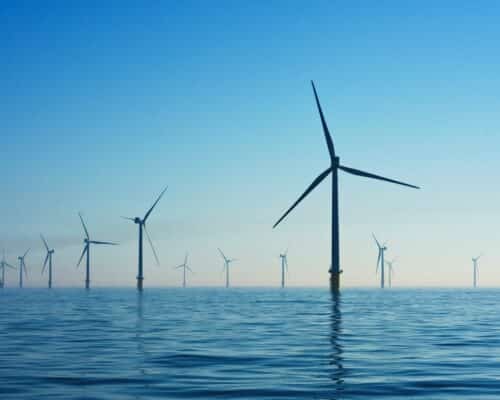
The Climate Leadership of the G7 Now Hangs on Japan
Without ensuring that all members share the same views regarding the energy transition, the G7 will have difficulty leading global climate policy. Convincing Japan of the urgency of phasing fossil fuels out and accelerating clean energy adoption is integral before the G20 and COP29 meetings later this year.

The Issue with Japan’s ESG Reporting
Japan has been struggling to catch up with the EU and the US in corporate ESG reporting standards. Progress is being made, but several problems still need to be addressed, including an over-reliance on fossil fuels in its power generation mix and a governance problem that seems hard to address.

Is Steel Bad For The Environment? A Look At Nippon Steel
The vast majority of Japanese steel is produced with coal blast furnaces. This does not align with domestic or international decarbonisation goals. As the market leader of Japan's steel industry, Nippon Steel needs to reassess its decarbonisation strategy. It currently falls short with ongoing coal investments and reliance on untested low-carbon production technology.
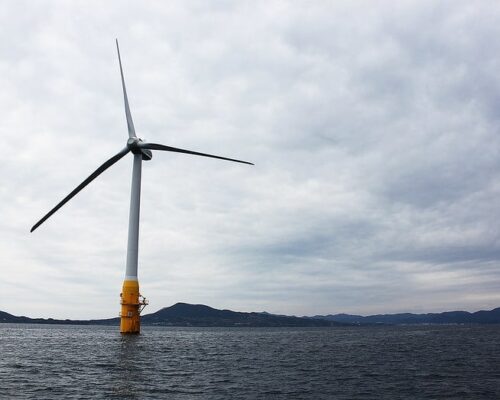
Japan’s Offshore Wind Revolution
Surrounded by windy oceans, Japan has tremendous offshore wind potential. For Japan to reach its 2040 offshore wind target, it would need 22,500 wind farms the size of Goto City’s. If the amendments in parliament are passed, Japanese wind manufacturers can export their technology to wind markets abroad. In that case, Japan will have no reason to continue its false solutions of ammonia co-firing and fossil fuel investments.

Embrace Solar Power and Beat Heatwaves
Amid scientists’ warnings that heatwaves will become more common and severe, solar power is proving a saving grace by helping reduce emissions and ensuring reliable and affordable energy when power systems crumble under the increased demand.

Japan’s Steel Industry: A Laggard For Decarbonisation
Japan's steel industry is one of the country's largest economic powerhouses, significantly influencing the global steel market. However, the industry's decarbonisation goals fail to align with the country's targets, which are already considered inadequate compared to its peers. A reassessment of the industry's goals and associated policies is necessary.

G7 Ministerial Meetings 2024 – Outcomes
The G7 has sent a clear message that it is moving away from coal. While a good start, the targets are vague and insufficient for a 1.5°C-aligned world. The G20 and COP29 summits and the upcoming NDC updates round provide the perfect opportunities to accelerate progress.

ASEAN Energy Transition: The Role of LNG
While the oil and gas industry insists that LNG demand will continue growing in upcoming decades mainly due to the economic growth of China and Southeast Asian countries, market experts and analysts claim the opposite, stressing the fuel's energy security and environmental, economic and geopolitical risks.
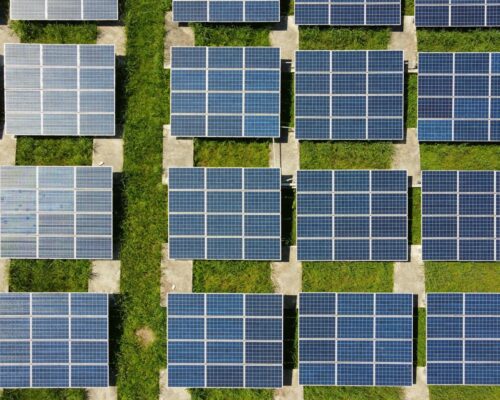
Asia’s Net-zero Transition Outlook 2050: Opportunities and Challenges
Accelerating the net-zero transition across Asia would ensure improved energy security and various economic gains, including cheaper energy, reduced fossil fuel subsidies, green jobs, reduced climate change costs and more.

Hydropower Reliance Is Risky for Asia
Scientists and experts warn that hydropower over-reliance can expose Asian countries to economic, environmental, social and energy security risks. However, hydropower can unlock various gains in a solar and wind-led energy transition.
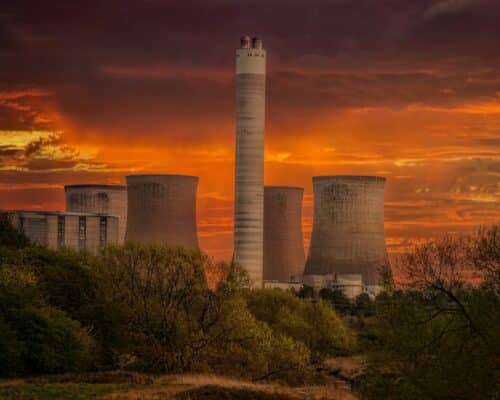
Japanese Banks Pour Billions Into Fossil Fuel Industry
Analysts warn that the continued fossil fuel support from the Japanese financial industry, showcased by the actions of various banks, insurance companies, asset owners and asset managers, is enabled by loose policies or loopholes. Fixing them is critical for addressing the climate crisis.
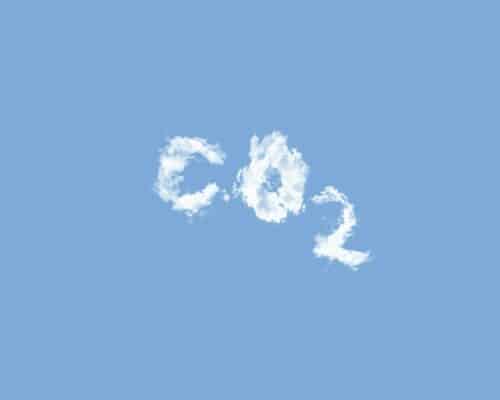
Carbon Capture vs Renewable Energy
The economic and decarbonisation deficiencies, combined with the health and environmental risks, cement CCUS's role as a complementary technology, mainly in hard-to-abate sectors, not a wildcard to perpetuate fossil fuel use.
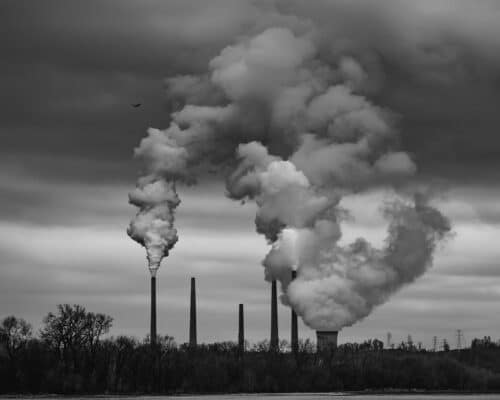
The Environmental and Climate Impacts of False Solutions on Japan
Japan is the leading proponent of the mass adoption of ammonia co-firing and CCS technologies for power generation domestically and across Asia. However, scientists warn that such steps will not only fail to reduce emissions but could also result in adverse impacts, including air pollution, water contamination and ecosystem degradation.
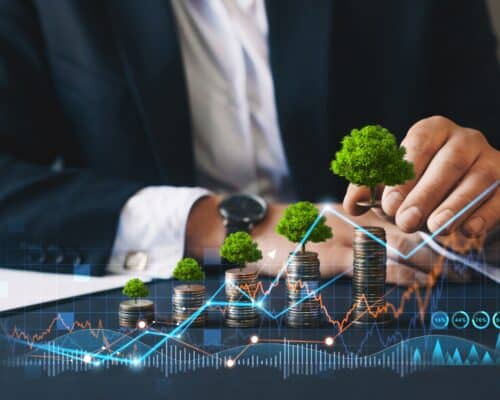
Energy Economics Show Renewable Energy Generation Is Less Capex Intensive Than Fossil Fuels
Renewable energy for the power sector keeps getting cheaper to build and operate. However, much of the Asia-Pacific region is still building out natural gas infrastructure. The region needs to pivot if it wants to reach its net-zero goals.

South Korea’s Energy Mix: Prominent Role of Fossil Fuels
The IEEFA warns that South Korea’s misplaced faith in fossil fuels could create a vicious cycle of spiralling energy costs, derailed decarbonisation progress and loss of opportunities as investors back the transition to renewable energy.

Indian Elections 2024: Climate Change Should Take the Spotlight
India has established itself as a leader in the region's clean energy transition. Still, the country's political parties now have to prioritise tackling climate change and taming its worst impacts – a problem scientists expect will worsen.
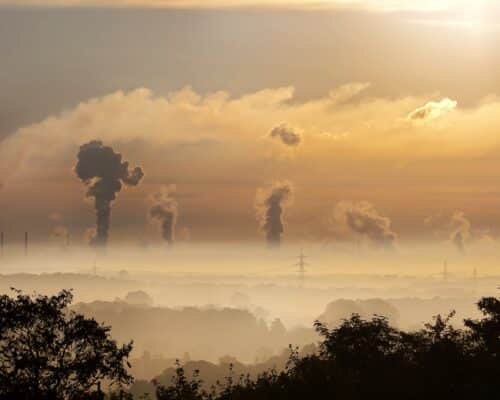
Ammonia-Coal Co-firing Plans Risk Worsening the Air Quality Problem in India and Pakistan
Experts describe technologies like CCS and hydrogen-ammonia co-firing as false solutions to climate change since they will perpetuate the use of fossil fuels. However, scientific evidence indicates that they also pose air pollution and health risks – problems India and Pakistan already have to deal with.

Are Carbon Emissions Decreasing?
The IEA finds that emissions are seeing a structural slowdown thanks to growing clean energy deployment. However, emissions are still rising, and the agency identifies developing Asia as the primary contributor to the persistently high CO2 emissions.
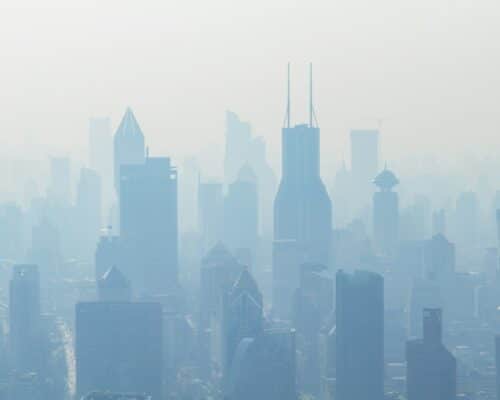
False Solutions to Climate Change Promoted in Southeast Asia Pose Various Risks
Instead of helping Southeast Asia wean itself off fossil fuels, ammonia-hydrogen co-firing solutions and CCS risk perpetuating their use and locking climate-vulnerable countries into a future of high emissions, air pollution and ecosystem disruption.

LNG Demand Decline in Japan To Cause Oversupply Through 2030
Considering the economic, environmental and energy security arguments, investing in new LNG capacity to accommodate the oversupply of Japan’s utilities instead of clean energy is a short-sighted, strategic misstep for developing Asia.
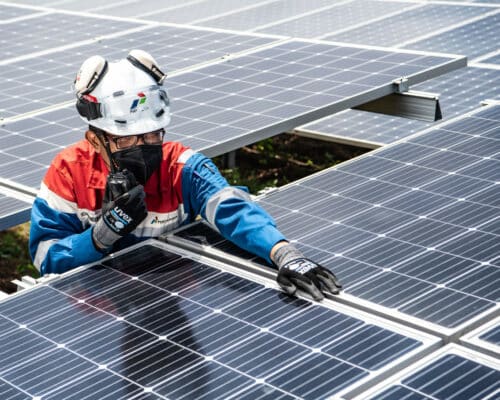
Indonesia’s NRE Bill Calls On Coal-based Energy Sources
Indonesia is still debating its New and Renewable Energy (NRE) Bill five years after its introduction. However, the draft bill includes coal derivative products, while the environmental stance of the country's newly elected president, Prabowo Subianto, remains problematic at best.
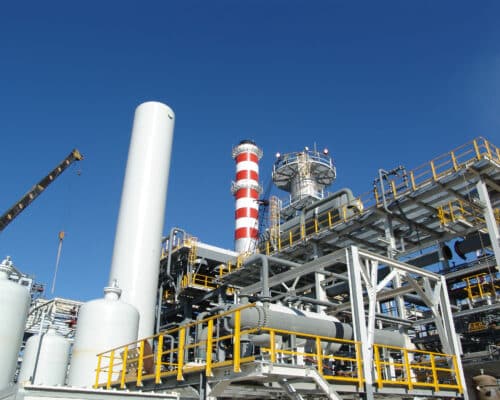
Low-carbon Hydrogen Is Dangerous: But Why?
Low-carbon hydrogen – made from natural gas with carbon capture and sequestration – is being pushed by fossil fuel companies and governments as necessary for the energy transition. Japan and South Korea have placed hydrogen, including low-carbon hydrogen, in the centre of their net-zero plans. However, the Environmental Defense Fund (EDF) has found that low-carbon hydrogen could be up to 50% worse for the climate than traditional fossil fuels.

Empowering Women to Front the Energy Transition in Asia
Vibhuti Garg, the South Asia Director at the Institute for Energy Economics and Financial Analysis (IEEFA), shares her views on a gender-inclusive clean energy sector and how women can be empowered to be at the forefront of India's energy transition.
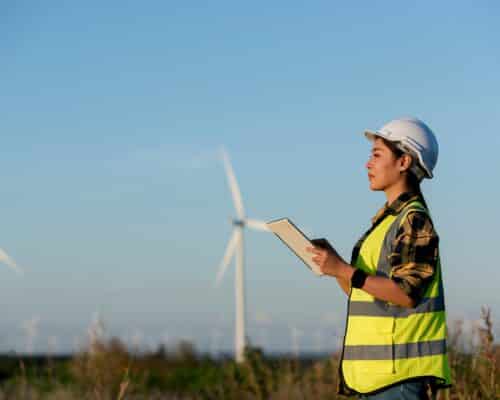
Empowering Women in the Energy Transition: A Catalyst for Change
Helen Jia, who leads the Asia Research Engagement (ARE) team in China, shares her thoughts on how women can find success and satisfaction and lead in the field of energy transition.
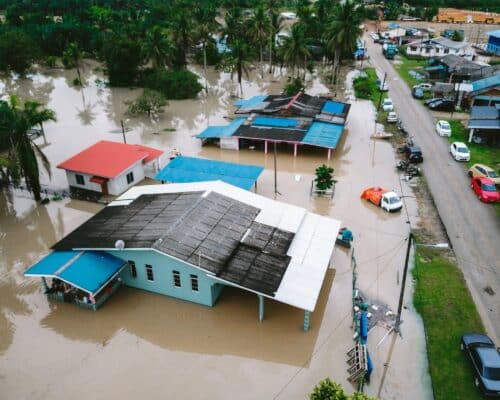
Flood Risk In Asia
Without urgent and deep emissions cuts, scientists warn that Asia will experience a substantial increase in projected rainfall and flood risk. However, these projections aren’t just a distant scenario but a harsh reality for many Asians today.
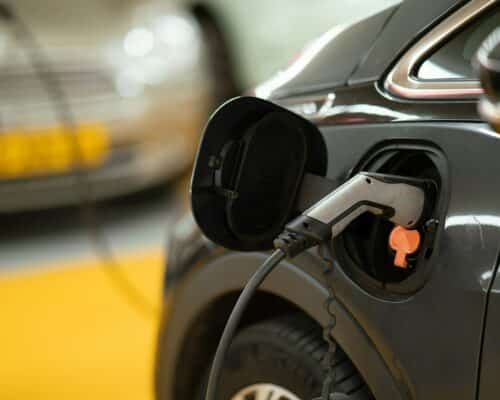
Indonesia to Experience a Green Jobs Boom, But Policy Changes Integral
Indonesia has ambitious plans for its green technology sector. However, to capitalise on the opportunities ahead, the country needs to make the industry more welcoming and lure its youth and experienced workforce to pursue green jobs.
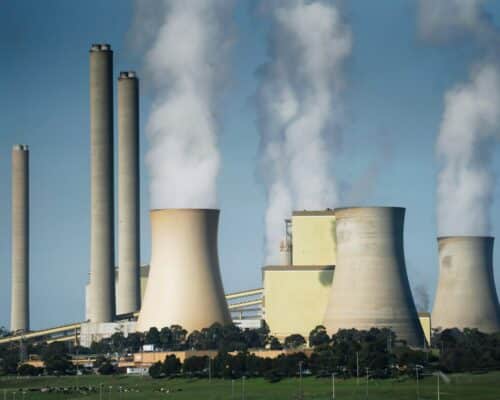
Addressing Captive Coal Power Crucial to the Decarbonisation of Indonesia
According to a joint report by CREA and Global Energy Monitor, future emissions from Indonesia’s captive coal plants are a major threat that must be considered within the planned use of the USD 20 billion Just Energy Transition Partnership (JETP) funding.

The Impact on Japan as President Biden Halts LNG Exports From New Plants
While President Biden’s decision doesn’t threaten energy security and short-term deliveries, it is yet another nail in the coffin of the theory that natural gas is the reliable “bridge fuel” the world needs.

Climate Change Litigation in Australia: Companies Could Get Three-year Pass
Climate change litigation has taken centre stage again in Australia. The country's Treasury is considering a new proposal limiting climate-related litigation against companies for three years. However, is this the best way forward? The country remains one of the worst polluters on the planet.
Future of Renewable Energy in the World: Massive Growth Expected
IEA notes that almost all new clean energy capacity added in 2023 had lower generation costs than new coal and gas plants, and 75% of new solar and wind plants offered cheaper power than existing fossil fuel facilities.
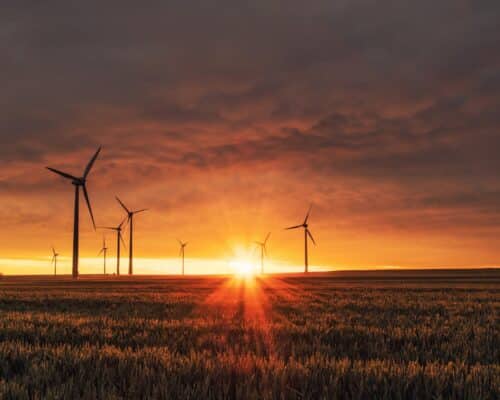
Indonesia Energy Transition Outlook 2024: In Light of the JETP
Whoever holds power after Indonesia’s February elections has a chance to alter the country's future. Projects, like increased coal and gas capacity and expensive, untested technologies, should remain on paper, while solar and wind must become the priority.
Azerbaijan to Host COP29 in 2024: What to Expect
The initial signs are that COP29 might be yet another conference where fossil fuel producers act in concert to stall global progress. However, Azerbaijan has the unique opportunity to do what no previous conference host has: increase financing for the most vulnerable ones to the needed levels, accelerate the phaseout of coal and urge for more ambitious emissions reduction targets.
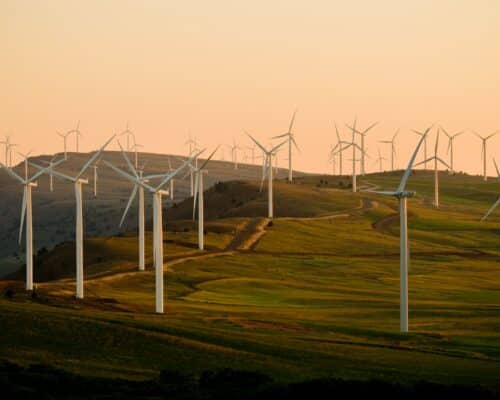
Renewable Energy Growth and Plunging Costs Make the COP28 Target Possible
While the world remains off track in reducing fossil fuel emissions and limiting temperature rise to 1.5°C, the momentum behind renewable energy technologies is aiding the shift towards a cleaner and more sustainable energy system.
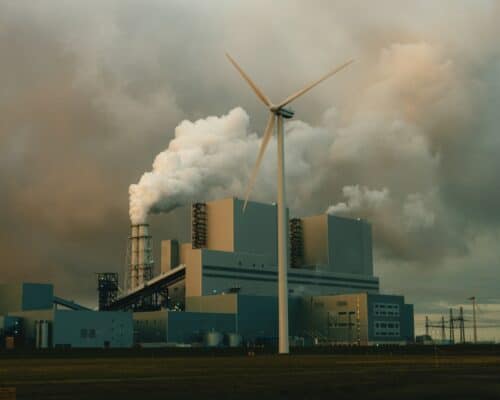
How COP28 Failed to Deliver on the Climate Crisis
Despite all the efforts to paint COP28's final text as a success, the result of the conference is a vague and non-binding agreement allowing the fossil fuel lobby to continue doing business as usual. All that while frontline communities stand at risk due to the climate crisis.
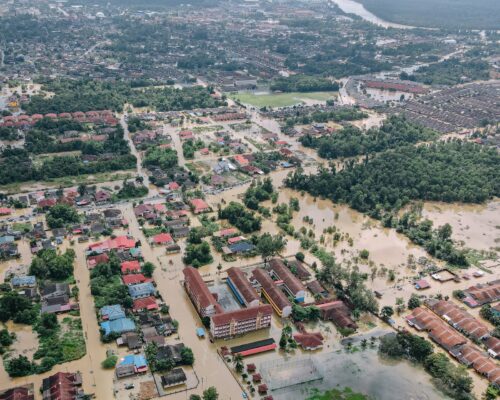
COP28 Loss and Damage Fund: A Historical Win or a Distraction From the Real Problem?
Climate-vulnerable nations experienced the hottest year on record in 2023. While they were looking towards COP28 with hope, despite all the efforts to brand the Loss and Damage Fund as a success, the unclear funding distribution and insufficient pledges are disappointing.

COP28 Outcomes: A Detailed Analysis And Future Implications
COP28 has ended with several major milestone commitments, yet many experts remain wary. Questions about accountability and financing remain.

Japanese Automakers’ EV Plans Under the Spotlight
Toyota Chairman Akio Toyoda has used a dip in global EV sales to justify his anti-EV stance. However, there's more behind the scenes. The legendary car maker has fallen behind its global EV rivals and is challenged by environmental groups for negatively influencing Paris-aligned climate policy.
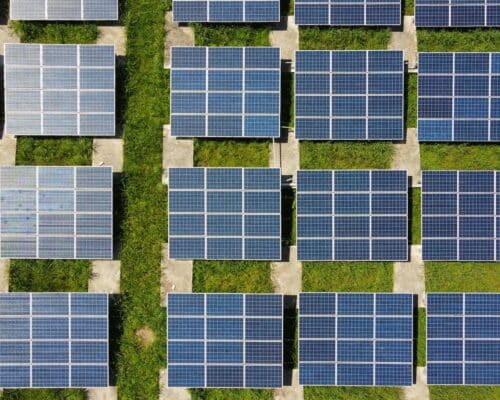
COP28 Targets Tripling Global Renewable Energy Capacity
COP28 is underway, and the target to triple renewable energy capacity by 2030 is the main headline. For the plans not to end up as another empty promise, global leaders should work to establish the needed regulations, investments, mechanisms for equal distribution and adequate progress monitoring processes.
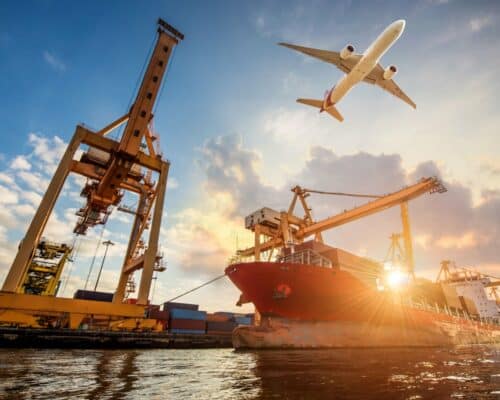
Trade Day at COP28: Climate Action with a Business Mindset
Trade plays an integral role in global decarbonisation. COP28 is the first COP to make trade a focal point of the conference, with a day focused on its discussion. The public and private sectors had several high-level discussions and made critical initial commitments.
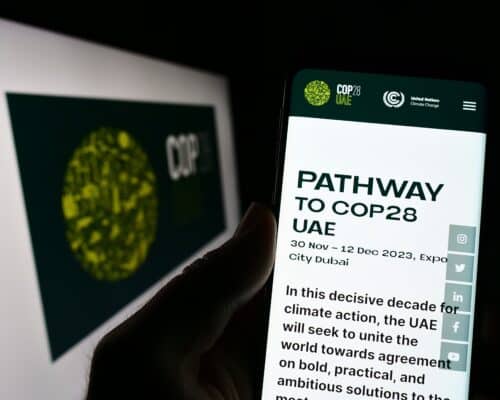
COP28 Climate Finance Day Nets USD 12.5 Billion in Pledges
Day five of the COP28 summit in Dubai started shaky, as reports broke over summit president Sultan Al Jaber’s earlier anti-fossil fuel phaseout comments. However, by the end of the day, significant progress had been made regarding climate change funding, setting the pace with at least 40 different financial pledges.

Japan Puts the G7 Climate Leadership at Risk
The fight against climate change started in Kyoto in 1997, with Japan at the helm. 25 years later, instead of leading it, Japan is stalling, and time is slipping away. This is having consequences for the world and the rest of the G7.
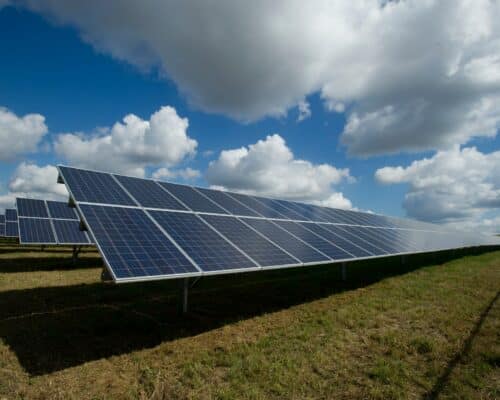
Southeast Asia Prefers Renewables, But Misplaced Fears of High Costs Delay Adoption
Southeast Asia has immense clean energy potential, and experts estimate that capitalising on it will unlock massive gains. With renewables being the cheapest source of new power in countries comprising two-thirds of the global population and responsible for 90% of electricity generation, switching to renewables will help Southeast Asian countries ease the burden of fossil fuel subsidies on their economies.

COP28 Goals: Targeting a Climate-resilient Future
COP28 revolves around the themes of invigorating climate adaptation and finance, making the summit inclusive and supporting communities at the forefront of climate change impacts. COP28's goals support these ideas with targets for emissions reductions, developing stronger climate commitments, meeting previous obligations and placing agriculture at the centre of climate action. Meeting these goals will be a major milestone in the world's response to climate change.

IEA: Urgent and Joint Action Needed To Keep the 1.5°C Target Alive
The IEA's latest report is clear: global leaders either take urgent and collective action now or miss the 1.5°C target.
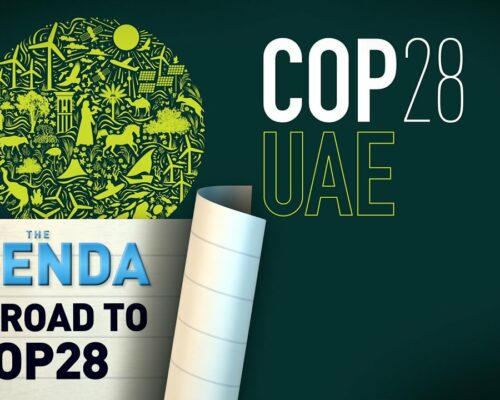
COP28 Agenda: Blueprint for Inclusive Global Climate Action
COP28 will focus on the first Paris Agreement Global Stocktake and will use the moment to realign national commitments towards limiting warming to 1.5°C. The meeting's agenda primarily aims to reduce emissions, increase renewable energy capacity, develop the financial system to support this goal and make climate action inclusive to all stakeholders.
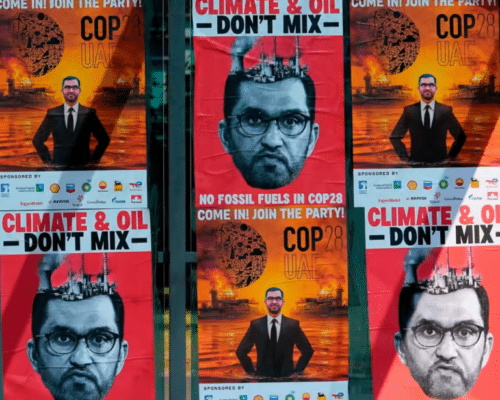
COP28 President and the UAE’s Lacklustre History on Climate Action
The United Arab Emirates is hosting COP28. The country's economy heavily depends on fossil fuels, and its choice for COP28 president has a long history in the industry. Will this impact the conference?
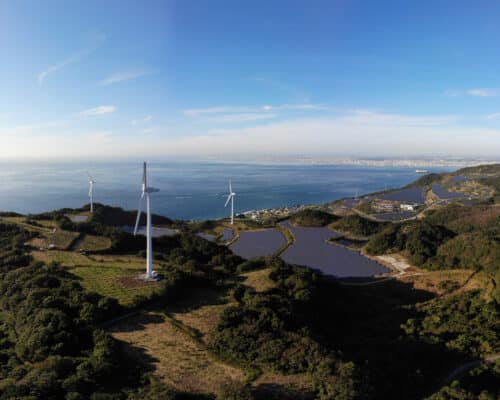
Taxation in Japan Jeopardises its Solar Sector
Japan has been grappling with how to decrease its disproportionate carbon emissions relative to its population of only 123 million people. Part of that solution includes developing solar power. However, there's a growing movement in more than 200 Japanese municipalities to levy prohibitive taxes on new solar power projects.
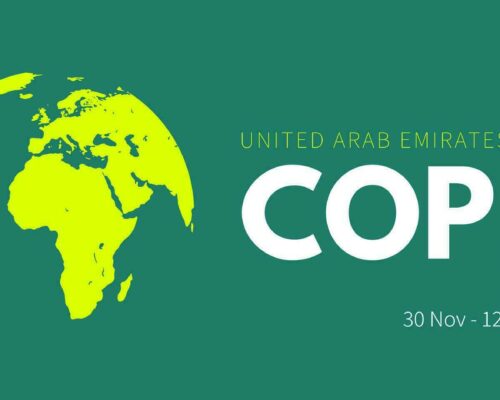
COP28 UAE – Goals and Commitments
This year's COP meeting will be held in the United Arab Emirates. The COP28 president has announced major goals for the summit, focusing on speeding up the global energy transition and making this year's COP the most inclusive yet.
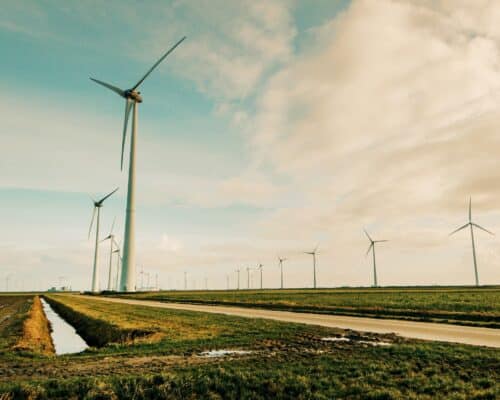
Breakthrough Agenda 2023: Cooperation Key to Advancing Clean Technologies
The clean energy transition is advancing but not at a pace adequate for a net-zero scenario. The Breakthrough Agenda Report 2023 recommends governments strengthen collaboration and ease regulatory burdens to accelerate clean technology deployment.
The Philippines’ Choice: Going Clean or Going With SMC
The Philippines has immense clean energy potential and has already witnessed the benefits of tapping into it. Whether the government continues in this direction will reveal if its priorities lay with the corporations or the public interest.
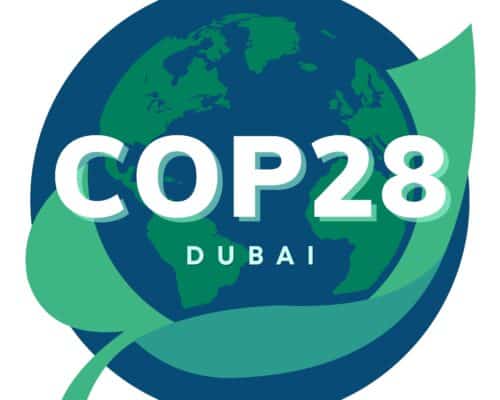
UN Climate Ambition Summit Sets Upcoming COP28 Agenda
UN Secretary-General António Guterres has pulled off an effective stroke of climate change diplomacy, upping the ante on major polluting countries and calling for more contributions and funds to poorer countries impacted unfairly by climate change. He also pressed for a coal-fired power generation phaseout and is already setting the climate agenda two months before the COP28 Summit in Dubai, UAE.
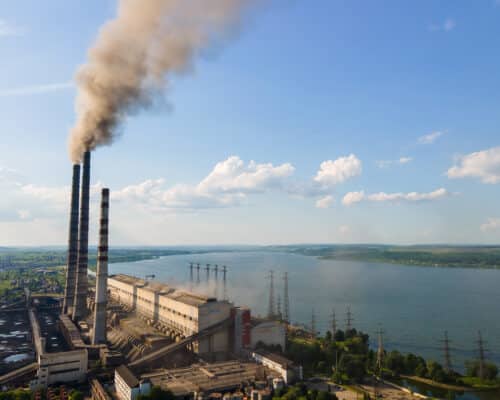
ASEAN Countries Need to Prioritise Renewable Energy Not Ammonia, Hydrogen and CCS
While Japan argues that its GX strategy can help countries accelerate their energy transition and ensure a reliable power supply, experts accuse the government of trying to export its fossil fuel lobby's interests. Southeast Asian countries shouldn’t be the ones paying the price.

G20 Summit 2023 in India: Leaders Fail on Fossil Fuel Phase-out and Emissions Cuts
While the proposed tripling of renewable energy capacity is a positive step, the lack of any mention of fossil fuel phase-out or concrete emission reduction targets is disappointing. Yet, both are indispensable for achieving the Paris Agreement targets.
Japan’s Energy Policy Is Turning It Into the World’s Climate Villain
Japan is quickly becoming the odd one at the table of the G7 regarding climate policies. Scientists, analysts and environmental and societal groups see it as the culprit of climate change inaction. It is time for Japanese governmental and corporate leadership to change that perception.

The LNG Plans For Samsung’s New Megaproject Threaten Its Reputation
Today, Samsung is far from being a climate leader - neither in terms of current progress nor when it comes to pledges. However, the company has all the means to become one. Advocating for more renewables and less fossil fuels in South Korea's climate policies is a crucial first step.
Japan’s Carbon Capture Investments in Australia Pose Significant Financial Risk
Japan continues to fund carbon capture projects in Australia despite lacklustre results and high costs resulting in mounting financial losses.
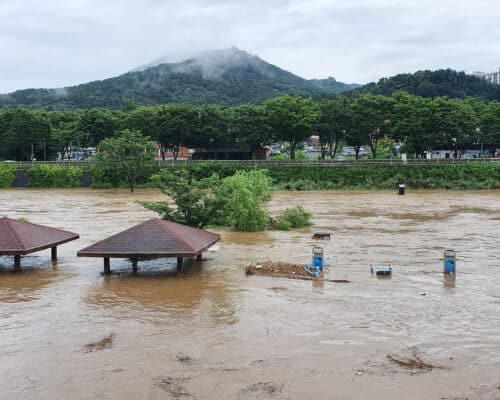
Climate Change in South Korea: Floods, Heat and Looking Away
South Korea's strategy to address climate change's impacts is reactive, not proactive, while its newly adopted policies and upcoming plans continue to undermine renewables.

Heatwaves in 2023: A Glimpse Into the Future of Climate Change
The G20 Summit, the UN Climate Ambition Summit and COP28 are just some of the opportunities to seal the fate of fossil fuels.

The G20 Energy Transitions Working Group: A Wasted Opportunity For Progress
The G20 ETWG became the latest conference that failed to produce meaningful fossil fuel phaseout progress.

Shell Pushes LNG Agenda and Backtracks on Sustainability
Oil and gas major Shell has decided to place profits over sustainability, backpedalling from previous commitments to rein in its carbon emissions. Governments must find ways to regulate these fossil fuel-producing giants.
Renewable Energy Investing Needs in 2023
The clean energy transition needs private capital that works in concert with favourable policies, regulations, decarbonisation goals and green capital market development.
COP28: Qatari and US LNG Uptick To Throw Climate Goals Into Chaos
COP28 Dubai could be jeopardised by massive new LNG investment by Qatar and the US as the world attempts to move away from fossil fuels.

Bangladesh’s Energy Needs and a Fair and Just Energy Transition
The switch towards renewable energy will not be the main threat to Bangladeshis' jobs and well-being. It's climate change.
The Biggest Renewable Energy Market Jump in 2023 and 2024
The IEA's June 2023 Renewable Energy Market Update forecasts an unprecedented wind and solar power boom globally.
Solar Energy Investment is Expected to Overtake Oil Production For the First Time
While investments in fossil fuels are slowing down, the IEA's World Energy Investment Report 2023 says they remain way above the levels needed to reach net-zero by 2050.

Vietnam Has Approved the PDP8: What Comes Next?
The approval of the PDP8 is finally here. While not without its potential flaws, the plan allows Vietnam to start leaping towards its net-zero by 2050 target – a moment that energy investors have long been waiting for.
MHI Greenwashing Tactics Demand Closer Scrutiny
Mitsubishi Heavy Industries (MHI) is pushing its net-zero emissions by 2040 pledge at full force. But, its strategy includes relying on gas-fired power projects, questionable carbon capture technology and profiting as a major carbon credit broker. These tactics demand closer media scrutiny and overall environmental monitoring.
European Green Deal: What Asia Can Learn
Following the shining example of EU member states and designing policies similar to the European Green Deal can help developing Asia build a more resilient, sustainable and cost-efficient energy system.
Taiwan’s LNG Development Overpowers Its Renewables Ambitions
The Taiwanese government has earmarked some USD 32 billion for renewables, hydrogen and carbon capture and storage (CCS) investments to move the country’s energy development in the right direction. However, it also continues a major liquefied natural gas (LNG) build-out as part of its long-term energy mix strategy, putting the country in an energy supply and climate mitigation quandary.
G7 Gas Move a Likely Nod to US and Japanese Interests
The G7 just concluded its meeting in Hiroshima. The group made several decisions impacting the global energy sector, including further reliance on coal-fired power projects and a problematic call to continue gas and liquefied natural gas (LNG) investment. These decisions come in light of long-term US and Japanese gas interests and development.
Natural Gas Forecast 2023: Demand in Asia to Bounce Back
While natural gas prices are expected to remain low, they would still be above their historical averages. As a result, Asian countries' imports would still be costly, even in an ideal world without any market volatility.
Thailand’s LNG Development Is Not The Way Forward For Its Energy Sector
Thailand is one of the few Asian countries ramping up LNG procurement as prices for the fuel dip. This comes as it needs gas to drive a post-COVID economic recovery. However, lower prices are only part of the story. The other part is that Thailand is a natural gas-based economy.
The G7’s Responsibility to Help Bangladesh and Other Climate-affected Countries
At the approaching 2023 G7 meeting, the world expects global leaders to address the elephant in the room: fossil fuel phase-out. The G7 must set an example and develop a unified vision to help address climate change – an issue heavily impacting developing nations.
Renewable Energy Projects in the Philippines: 100% Foreign Ownership Authorised
The Philippines' drive to ramp up its renewable energy sector is a step in the right direction. However, it needs even more renewable energy development and investment. The government must also make a net zero by 2050 pledge to catch up to its regional neighbours.
Energy Security in Bangladesh is Threatened by Fossil Fuels
The fossil fuel dependence of Bangladesh has significantly impacted its economy. The country should no longer bear the exorbitant power costs and unreliable supply, especially when better, cleaner and cheaper options exist.
Japan’s Ammonia Plans Threaten the Carbon Emissions Reduction of Southeast Asia
Aside from a few positive outcomes, the G7 ministerial meeting ended disappointingly due to a final communique with vague wording and weak commitments. This sets the stage for Japan to continue doing business as usual.
How the Unreliability and Unpredictability of Fossil Fuels Hurt Bangladesh
Bangladesh has suffered enough from fossil fuel import dependence and has experienced first-hand how the dirtiest fuels affect the climate. However, thanks to its clean energy potential, the country holds the keys to an independent and sustainable future.
G7 Summit 2023: What to Expect
Japan is hosting the G7 summit for 2023 in Hiroshima. It will be a pivotal meeting for climate action as Japan continues to fall out of step with fellow G7 nations. Will Japan use its presidency to continue this trend or make changes?
The Electricity Sector in Bangladesh: What Comes Next?
Transitioning the power sector in Bangladesh towards renewable energy would unlock massive benefits for the country, its economy and society.
New WMO Report: The Extreme Weather Events Impacting the World
The new report showed that climate change's impacts are being felt across the globe with no signs of slowing down.
Taiwan’s Tech Giant TSMC’s Net Zero Pathway Falls Short
Giant chipmaker TSMC is facing a backlash over its enormous fossil fuel usage and carbon emissions, even as much of the global tech sector cleans up its carbon footprint.
Japan’s ‘Green Transformation’ (GX) Is Stacked With Fossil Fuel-based Technology
Japan is promoting its green energy transformation, but it's a false narrative since it still includes liquefied natural gas (LNG), coal and fossil fuel-based technology. Japan must also quickly set forth a formal coal reduction and elimination plan before it hosts the next G7 meeting in May.
Fossil Fuel Imports Risk Japan’s Energy Security
Japan has low domestic fossil fuel production yet relies on fossil fuels for most of its energy. High dependence on foreign imports is creating energy security concerns. However, Japan remains seemingly uncommitted to completely phasing out fossil fuels, lagging behind other G7 nations.

G7 Ministers’ Meeting 2023: What Is the Desired Outcome?
The G7 Climate and Energy Ministerial Meeting is shaping up to be a roadshow for Japan's questionable technologies. If the world is to stand a chance in limiting climate change to 1.5°C, the G7 reject the proposals, speed up coal phase-out and limit gas investments.
Cost and Viability Plague Carbon Capture and Storage in the Power Sector
Carbon capture and storage (CCS) is being pushed as a decarbonisation pathway for the power sector. However, all commercial-scale CCS projects paired with thermal power plants have underperformed, and costs are prohibitively high. Alternatively, wind and solar are both proven, cost-efficient technologies. Investors and decision-makers need to refocus their efforts on transitioning away from fossil fuels.
Wind Energy in Vietnam – Opportunities and Potential
Vietnam has already established itself as one of the world's most notable clean energy success stories. However, to retain that crown, the country needs to incentivise foreign financiers.
Japan-Vietnam Energy Relations: Opportunities and Risks
Vietnam needs a partner that will prioritise its decarbonisation and access to affordable and ready-to-be deployed solutions to make the most of its clean energy potential. It doesn't need to be pushed towards distracting technologies with questionable decarbonisation credentials. The approach that Japan will take in its cooperation remains to be seen.
The Future of Earth is at Risk: Thanks to Climate Change
The last IPCC report for the next few years gives a sobering assessment that the world is running out of time to tame the climate crisis. However, it also notes that the solutions are there for the taking.
The IEA’s Global Methane Tracker 2023: Methane Emissions Reduction No Longer Complicated or Expensive
The IEA's latest report, which includes valuable recommendations and an actionable roadmap for curbing methane emissions. It proves that the oil and gas industry and governments now have all the means to start working on methane emissions reduction.
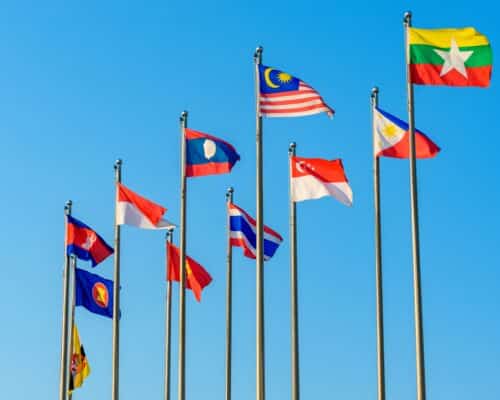
The Future of Natural Gas In Asia
A recent ERIA-backed workshop calls for more natural gas usage in Asia until at least 2050. However, energy economics, long-term economic stability and climate mitigation dynamics throw doubt on those conclusions.
Asia’s Role in the Russia-Ukraine War: One Year Later
A little over a year after the start of the war in Ukraine, CREA's data reveals that countries continue actively buying Russian fossil fuels, with Asian nations among the leading contributors to Russia's state budget.
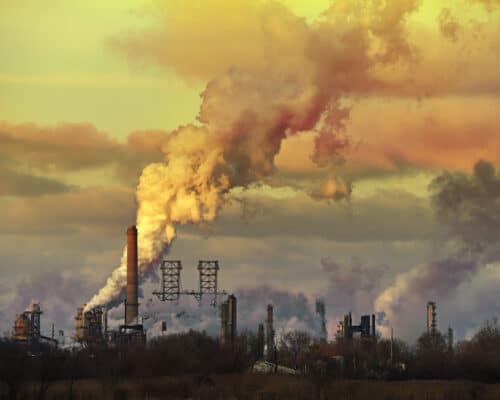
Energy Transition Technologies: Deficiencies of the Japan-led Guidelines
Recent guidelines on transition technologies for Asia, influenced by Japanese energy policies, promote CCUS and ammonia co-firing in the power sector. As a result, they risk derailing the decarbonisation efforts of SEA countries and the financing institutions investing in transition technologies.

China’s Fossil Fuel Addiction and the Green Transition
China's renewables development leads the world by a more than a two-to-one ratio, but its fossil fuel usage still accounts for more than 50% of its power production needs, creating the world’s highest GHG emissions.
Greenwashing Ads: Fossil Fuel Giants Dominate Social Media
Social media platforms are proving the perfect environment for the oil and gas industry to run greenwashing campaigns. Without swift and adequate action, tech companies risk becoming complicit partners in delaying and derailing necessary climate action.
Driving Change: The Story of Electric Vehicles in Indonesia
The EV transition is taking the world by storm. While emerging markets remain the last bastion of legacy automakers, they will soon also embrace the transport industry's electrification. And Indonesia promises to be among the best examples of the EV revolution.
Japan’s Hydrogen Plans: A Closer Look
Japan is basing much of its 2050 net-zero goals on hydrogen development without clearly defining what it considers "clean hydrogen". As such, its hydrogen plans mostly rely on blue hydrogen, which still involves burning fossil fuels.
Global LNG Outlook 2023: Is There a Future for LNG?
Global LNG markets will remain volatile for the rest of the decade, negatively impacting Southeast Asia. The region's carbon emissions-intensive gas-to-power build-out exacerbates the problem. With a myriad of problems from LNG and gas-to-power usage, energy economics dictate that renewables development is the best path for Southeast Asia.
Japanese Technology Expansion: Southeast Asia Pays the Price
This year's G7 meeting, which Japan will chair, remains an important moment for its international credibility in the battle against the climate crisis.

Companies’ Climate Pledges: A New Report Unveils the Reality
While no company is perfect, there are clear leaders that others should strive to follow. In the end, decarbonisation should be a common goal that can only succeed through collective efforts. And there is no sector better positioned to lead the global efforts in addressing climate change than the tech industry.
Go Clean ICBC: Fossil Fuels Continue to Dominate the Investments of Chinese Banks
China and its state and privately owned banks' continued support for coal projects are the main lifeline for the dirtiest fuel. However, with global decarbonisation efforts underway, supporting projects like these can also bear massive financial and reputational risks.
Bangladesh Grapples With Adani Over One-sided Power Deal
Bangladesh finds itself in an expensive coal-fired power plant deal with Adani. Not only is the deal not in the best interests of Bangladesh, it needs to be replaced by cleaner and cheaper renewables development.
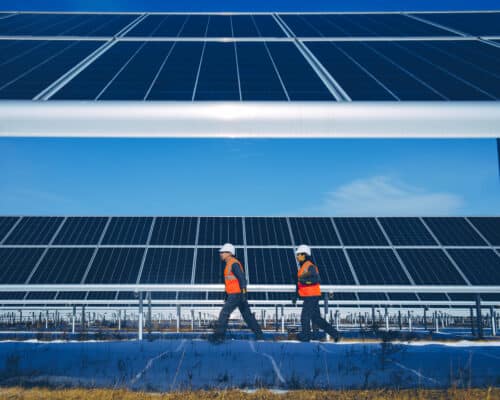
Clean Energy Technologies 2023: Opportunities and Risks of the New Energy Economy
The clean energy revolution is well and truly underway and, China alone won't be able to satisfy the demand for renewable energy technologies. At the same time, investors are hungry for investments. By shaping carefully crafted industrial strategies and welcoming regulatory policies, Asian countries can position themselves for sustainable growth while decarbonising their economies.

The Global Cooksafe Coalition and the Mission to Accelerate the Switch From Gas to Sustainable Cooking
Cooking with gas is associated with health, climate and financial concerns. The mission of the Global Cooksafe Coalition is to help households worldwide overcome them by transitioning to electric and induction cooking.
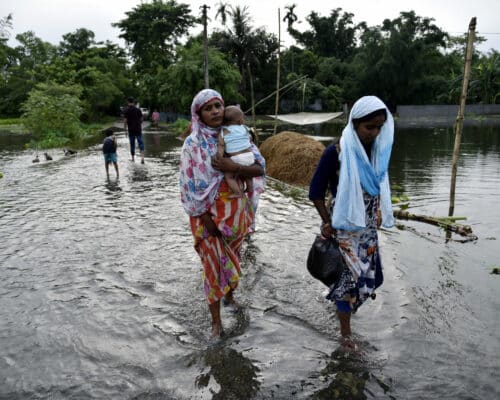
Climate Change In South Asia and the Reality of Loss and Damage
Climate change has taken a hefty toll on South Asia in 2022. While the sub-continent has always been prone to extreme weather events, the past year was especially dramatic.
Gas Demand Destruction to Give Way to More Renewable Energy Development
The cost of the LNG used for power production and the industrial sector could be devising in its own downfall due to gas demand destruction.
The Economic Benefits of Renewable Energy For Asian Countries
At a time of soaring inflation, exorbitant fossil fuel prices, unreliable power supplies and a never-ending energy crisis, Asian countries should start considering the economic benefits of renewable energy.
COP27 Egypt and the Outlook For Natural Gas in Asia
COP27 has shown that while gas won't be going away soon, its faith is already determined. And Asian countries should be aware of that.
High Energy Prices Wreak Havoc on Sri Lankan, Bangladeshi and Pakistani Economies
Before Russia’s invasion of neighbouring Ukraine, Sri Lanka, Bangladesh and Pakistan had set their hopes on LNG to diversify their respective power generation mixes away from an overreliance on coal. However, record high LNG prices in the Asia-Pacific region, for both spot procurement and LNG indexed to crude oil, have wreaked havoc on these countries.
Global Inflation 2022: The Culprit – Fossil Fuel Prices
Aside from taking a toll on the climate and the environment, fossil fuels are also bearing massive financial and economic risks, including stranded infrastructure, cascading inflation and unstable energy supplies.
Climate Negotiations Agenda at COP27 2022
Leaders at COP27 should look at climate change as a way to foster geopolitical stability and unite the disjointed world powers to overcome the energy, food and climate crises.
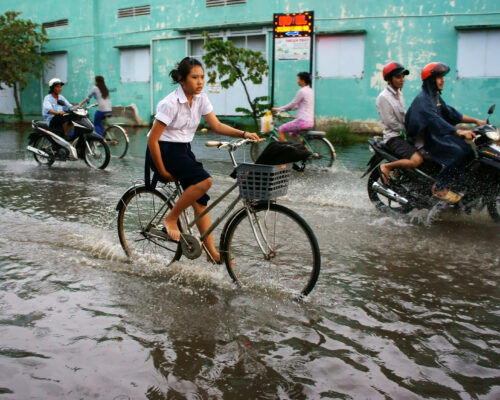
COP27 Priorities: Climate Change Adaptation and Mitigation
Mitigation is critical to minimise the risk of climate change's worst impacts, but failing to fund adaptation will take a toll on the most vulnerable. Both aspects should be priorities for COP27.
Climate Change Impacts Are Worsening in 2022 and COP27 and G20 Leaders Need to Respond
A new study reveals the massive proportion of climate disasters all across the world, proving that no country is safe from climate change's impacts. Climate financing for mitigation, adaptation and loss and damage should be central to the COP27 and G20 meeting agendas later this year.
Climate Change in Japan: The Role of Japanese Companies
Japanese companies can be a real driving force in the country’s decarbonisation journey. The government, on the other hand, has to set more ambitious targets. Only by working together can the state and the private sector accelerate Japan's net-zero transition.
The Transition to Clean Cooking: How to Replace Gas?
While gas has long been considered a clean cooking fuel, research shows that it can impact health. This, paired with the high gas prices, the global net-zero journey is making countries around the world look for alternatives. Induction and electric stoves can be the solution. And the renewable energy transition is starting to prove it.
Using Gas for Cooking in Asia: History, Drawbacks And Future
In the search for cheaper and cleaner cooking alternatives, countries across the world are replacing gas stoves with induction and electric appliances. While low and middle-income countries in Asia might find this shift challenging at first, the path forward is clear – dirty and expensive fuels will make way for cleaner and cheaper alternatives.
The Cost of Sustainability for Asia is Lower than the Benefits
As one of the most vulnerable regions to climate change, Asia has virtually nothing to lose from the looming energy transition. While investments are needed, the cost of sustainability is negligible compared to what the continent stands to gain.
The Economic Benefits of Renewable Energy for Asia: Crunching the Numbers
The transition from fossil fuels to renewable energy in Asia will unleash massive economic benefits, including expanding the job market, ensuring steady GDP gains and hedging the unpredictable fossil fuel prices.
The Economic Cost of Climate Inaction for Asia
Climate inaction will not only cause environmental damage, but it will also lead to loss of livelihoods, as well as migration and direct economic costs. Countries have long been brushing the problem under the carpet. However, its consequences are now proving to be devastating, especially to the most vulnerable.
How to Avoid Greenwashing: A Guide for Sustainable Businesses and Marketing Leaders
Today, the public uses a microscope to look for the significant gaps between a firm's words and actions. And if these gaps are found, the reputational damage is often hard to recover from, since markets have long memories. However, business leaders hold their future in their own hands.
Financial Greenwashing: What is it and How Does It Happen?
Financial greenwashing threatens to derail the global decarbonisation journey by abusing investors' trust and channelling funds into instruments and projects with suboptimal impact against climate change.

The Latest PDP8 Vietnam Draft – Focus on Renewable Energy and a Drastic CO2 Emissions Reduction
The latest draft of the Vietnam PDP8 sends the positive signal that the country is no longer looking in the direction of fossil fuels. Instead, it is further diversifying its low-carbon power sources, planning for notable clean energy growth and a massive CO2 emission reduction.

China’s Coal Imports Drop and the Imminent Effect on Coal Exporters
China's latest decision to reduce coal imports has shocked countries like Australia. Yet, aside from the challenges there are opportunities.

The Japan Net-Zero Commitments: Ambitious and Honest or Unrealistic and Hypocritical
Japan should be at the forefront of the clean energy transition. While the country has made multiple pledges, its actions and meaningful results are still lacking.
Global Economic Recovery after COVID-19 Pandemic – What 2022 Holds for the Energy Market
We sit with experts and stakeholders from all parts of the energy market to discuss what 2021 taught us, how will the global economic recovery continue in 2022 and which will be the decisive factors for the energy market and climate finance in Asia going forward.
Pathway to Zero Emissions for Hard-To-Decarbonise Industries
Decarbonisation of hard-to-abate sectors will be among the most essential tools to empower the world's emission reduction targets. While the progress had so far been stalling and challenges remain, the opportunities for a rapid transformation of hard-to-decarbonise sectors are there for the taking.
Asia’s Role in Defining the Pace of Renewable Energy Transition
The talk about the renewable energy transition often revolves only around the need for new clean energy capacity to replace the existing global fossil fuel fleet. If the world is to maximize the results of its net-zero aspirations, the scope of the renewable energy transition dialogue and action should widen to also include critical aspects like the need for better policies, equal electricity access, reskilling, and more.
The Boom of Green Investments in Asia and the Reasons for the Investors’ Interest
As the next renewable energy powerhouse, Asia is a primary point of interest for many...
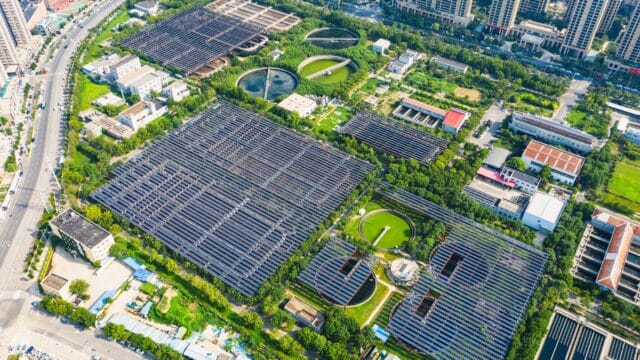
Clean Energy Drove More Than a Third of China’s GDP Growth in 2025 [Op-Ed]
Clean-energy sectors powered more than a third of China’s GDP growth in 2025, driving over 90% of investment gains and reaching a record 15.4 trillion yuan. If clean energy were a country, it would rank as the 8th-largest economy, growing at about 18% in 2025 while the broader economy expanded 5%. The outlook remains uncertain, but local governments and state-owned enterprises could keep the clean-energy boom going even as policy targets evolve.
Philippines Weighs High-Stakes Carbon Pricing and Common Market Pitfalls [Op-Ed]
The Philippines is pursuing a domestic carbon pricing path with an Emissions Trading System (ETS) through the Low Carbon Economy Investment Bill, aiming to mobilise private capital for climate resilience. However, a critical policy analysis warns that without strong social and environmental guardrails—clear absolute caps, just transition safeguards, and robust governance—the proposed system could legitimise pollution and fall short on real emissions reductions. The report calls for complementary legislation and safeguards to ensure that carbon finance benefits people, ecosystems, and local communities rather than serving as a loophole for compliance without meaningful decarbonisation.
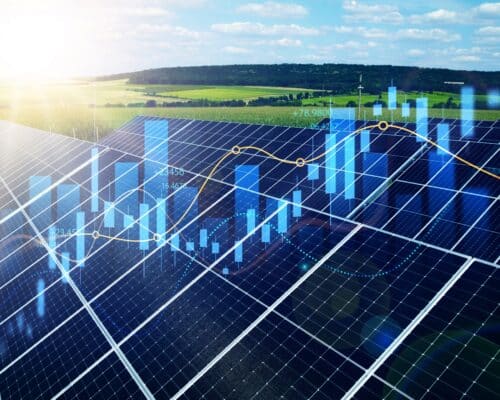
Best Renewable Energy Stocks to Buy in 2026
Renewable energy equities are shifting from policy-driven bets to market-driven growth in 2026, with major players delivering contracted cash flows, scalable platforms and AI-powered demand. From NextEra and Brookfield Renewable to solar manufacturers like First Solar and innovators like Nextpower, the sector now blends defensive stability with upside growth as data centres and electrification accelerate demand. This market migration could redefine core portfolios as clean-energy fundamentals align with a multipronged growth thesis.
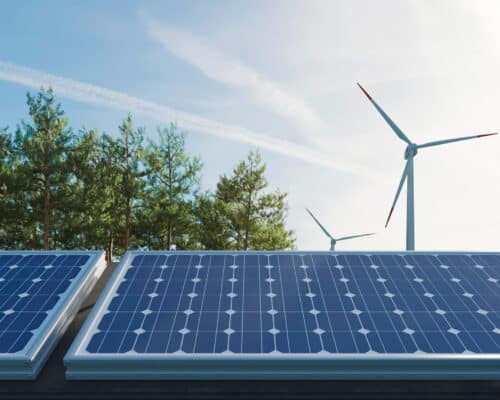
Best Renewable Energy Companies To Invest In 2026
Investors are shifting capital towards renewable energy as AI, data centres and global electrification drive unprecedented electricity demand. With global renewable investment now surpassing oil and gas by hundreds of billions, companies offering scale, technology and stable cash flows are poised to lead in 2026.
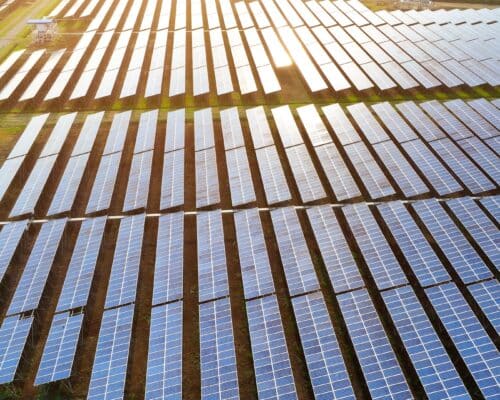
Renewable Energy Investment Opportunities in 2026
Renewables have crossed into a mature, capital-driven phase, with solar, wind and hydropower now central to national strategies and grid expansions. Global clean energy investment reached approximately USD 2.2 trillion in 2025, with renewables alone accounting for around USD 780 billion, driven by the increasing adoption of scalable solar and storage technologies as costs decline and long-term contracts become more prevalent. As Asia emerges as the investment epicentre, the energy transition shifts toward infrastructure, grid integration and selective, risk-aware capital deployment.
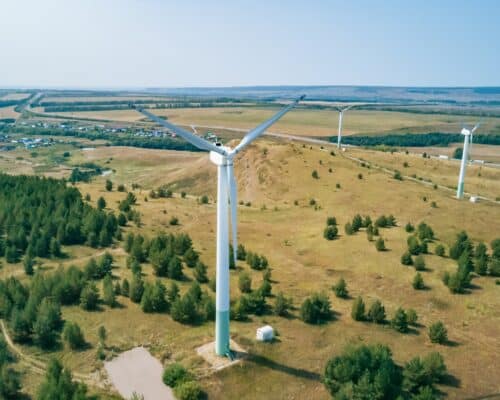
Can Renewable Energy Replace Fossil Fuels? What the Data Now Shows
Clean energy is no longer an alternative — it’s becoming the backbone of the global power system. Renewables are overtaking fossil fuels in terms of efficiency, cost and deployment, with solar, wind and storage displacing fossil fuel generation and nuclear gaining momentum, signalling an accelerating transition that reshapes economies, jobs and climate outcomes.
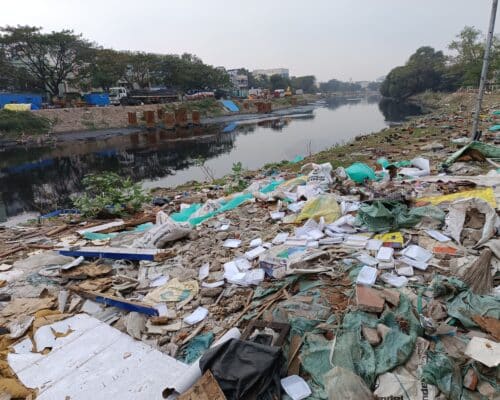
The Most Polluted River in India Is Not the Ganga or Yamuna
India’s river pollution crisis has a new face: the Cooum in Chennai, now considered the country’s most polluted waterway. Across 46% of India’s rivers, contamination from untreated sewage, industrial discharges and waste is threatening public health, livelihoods and ecosystems, with major stretches, such as the Yamuna and Sabarmati, illustrating the depth of the challenge. The drivers, impacts and the urgent policy gaps must be addressed to reverse decades of neglect.

Water Pollution in India and Its Toll on Rivers and People
Water pollution in India remains an urgent crisis, threatening public health, ecosystems and the economy despite ongoing cleanup efforts. With 40% of monitored river stretches failing to meet basic water-quality norms and groundwater contamination on the rise, urgent, coordinated action is needed to safeguard the country’s scarce freshwater resources.
Most Popular
Most Popular
Categories
-
10
-
34
-
126
-
4
-
17
-
46
-
52
-
11
-
15
-
10
-
24
-
6
-
5
-
1
-
6
-
283
-
200
-
17
-
24
-
1
-
1
-
23
-
41
-
44
-
88
-
18
-
86
-
41
-
17
-
11
-
43
-
54
-
86
-
299
-
22
-
44
-
36
-
11
-
42
-
36